Shows
 Neuroverse101. CausalityIn today's episode Carolina and Clara probe at what causality means, both in a philosophical sense and a scientific one. We talk about how neuroscience can probe at causality, the fine line between correlation and causation, how hypotheses are and should be derived, validation and falsification, and more!---We hope you enjoy the episode! Please feel free to share with your friends and family, it means a lot to us🤍Neuroverse Websitehttps://neuroversepod.comPodcast directoryhttps://anchor.fm/neuroverse9 Instagram: @Neuroverse_pod https://instagram.com/neuroverse_pod?igshid=YmMyMTA2M2Y= Support us! https://ko-fi.com/neuroverse2025-07-0342 min
Neuroverse101. CausalityIn today's episode Carolina and Clara probe at what causality means, both in a philosophical sense and a scientific one. We talk about how neuroscience can probe at causality, the fine line between correlation and causation, how hypotheses are and should be derived, validation and falsification, and more!---We hope you enjoy the episode! Please feel free to share with your friends and family, it means a lot to us🤍Neuroverse Websitehttps://neuroversepod.comPodcast directoryhttps://anchor.fm/neuroverse9 Instagram: @Neuroverse_pod https://instagram.com/neuroverse_pod?igshid=YmMyMTA2M2Y= Support us! https://ko-fi.com/neuroverse2025-07-0342 min Neuroverse[Summer Rerelease] Breathing, the Brain, BeingWelcome to our special summer rerelease series! Carolina and Clara take a trip down memory lane with a special series dedicated to their older episodes, including ones you may have missed! Have you ever wondered how the breath and the mind are connected? In this episode, Carolina and Clara explore the neuroscience of breathing: how the rhythm of breathing influences brain-wide activity, providing a scaffold for the transfer of information across the brain, and how breathing influences our attentional and interoceptive states, which ultimately define our experience of being. ---We hope you e...2025-06-1924 min
Neuroverse[Summer Rerelease] Breathing, the Brain, BeingWelcome to our special summer rerelease series! Carolina and Clara take a trip down memory lane with a special series dedicated to their older episodes, including ones you may have missed! Have you ever wondered how the breath and the mind are connected? In this episode, Carolina and Clara explore the neuroscience of breathing: how the rhythm of breathing influences brain-wide activity, providing a scaffold for the transfer of information across the brain, and how breathing influences our attentional and interoceptive states, which ultimately define our experience of being. ---We hope you e...2025-06-1924 min Neuroverse99. Children, Adolescents & Social Media (with Dr Jennifer Wills Lamacq)In today's episode Carolina and Clara are joined by Dr Jennifer Wills Lamacq to discuss how adolescents and children are socialised, affected by social media, and how governmental policies affect the landscape of children's social development. This episode was inspired by the Netflix series "Adolescents" which brought to light crucial issues to be discussed regarding the impact schools and social media has on a child's upbringing. We discussed safe practices to educate children in the online world, how children are being socialised in school, the importance of independence outside the home and children-friendly policies. 2025-05-2248 min
Neuroverse99. Children, Adolescents & Social Media (with Dr Jennifer Wills Lamacq)In today's episode Carolina and Clara are joined by Dr Jennifer Wills Lamacq to discuss how adolescents and children are socialised, affected by social media, and how governmental policies affect the landscape of children's social development. This episode was inspired by the Netflix series "Adolescents" which brought to light crucial issues to be discussed regarding the impact schools and social media has on a child's upbringing. We discussed safe practices to educate children in the online world, how children are being socialised in school, the importance of independence outside the home and children-friendly policies. 2025-05-2248 min Neuroverse98. Ontology of Cognition- How Should We Define How We Think and Function?In this episode, Carolina and Clara dive into the question of cognitive ontology. From philosophers like Plato, to psychologists like Thomas Reid, and phrenologists like Franz Gall, many have set out to define how we think and how we should categorise the functions that make up human cognition. While some functions such as sensory processing or memory are intuitively well-defined, others such as empathy or hierarchical processing remain more cryptic. With the emergence of modern neuroscience, the story only gets more complicated, as brain activity of different areas does not neatly fit with our set of cognitive functions- while...2025-05-0136 min
Neuroverse98. Ontology of Cognition- How Should We Define How We Think and Function?In this episode, Carolina and Clara dive into the question of cognitive ontology. From philosophers like Plato, to psychologists like Thomas Reid, and phrenologists like Franz Gall, many have set out to define how we think and how we should categorise the functions that make up human cognition. While some functions such as sensory processing or memory are intuitively well-defined, others such as empathy or hierarchical processing remain more cryptic. With the emergence of modern neuroscience, the story only gets more complicated, as brain activity of different areas does not neatly fit with our set of cognitive functions- while...2025-05-0136 min Neuroverse97. Geometric Collective Decision Making (with Professor Ian Couzin)In today's episode Clara and Carolina are joined by Professor Ian Couzin who is the Director of the Max Planck Institute of Animal Behavior and a Professor and Director (Speaker) of the German Research Foundation (DFG) Excellence Cluster. His work aims to reveal the principles that underlie evolved collective behavior, using a wide range of biological systems, from insect swarms to schooling fish, primate groups and humans.In this episode, we discuss the variety of collective behaviours seen across species and probe at some of the key questions in the field including: to what extent can computational...2025-04-2440 min
Neuroverse97. Geometric Collective Decision Making (with Professor Ian Couzin)In today's episode Clara and Carolina are joined by Professor Ian Couzin who is the Director of the Max Planck Institute of Animal Behavior and a Professor and Director (Speaker) of the German Research Foundation (DFG) Excellence Cluster. His work aims to reveal the principles that underlie evolved collective behavior, using a wide range of biological systems, from insect swarms to schooling fish, primate groups and humans.In this episode, we discuss the variety of collective behaviours seen across species and probe at some of the key questions in the field including: to what extent can computational...2025-04-2440 min Neuroverse93. Antibiotic ResistanceIn today's episode Carolina and Clara discuss antibiotic resistance, the danger it poses, how it happens and the new therapies being researched to overcome antibiotic resistance! Today’s episode was made possible thanks to the support of the Biochemical Society public engagement fund. We would like to thank the Biochemical Society for the generous grant supporting Science Communication initiatives like these. https://www.google.com/search?client=safari&rls=en&q=the+biochemical+society&ie=UTF-8&oe=UTF-8---We hope you enjoy the episode! Please feel free to share with your friends and...2025-02-2731 min
Neuroverse93. Antibiotic ResistanceIn today's episode Carolina and Clara discuss antibiotic resistance, the danger it poses, how it happens and the new therapies being researched to overcome antibiotic resistance! Today’s episode was made possible thanks to the support of the Biochemical Society public engagement fund. We would like to thank the Biochemical Society for the generous grant supporting Science Communication initiatives like these. https://www.google.com/search?client=safari&rls=en&q=the+biochemical+society&ie=UTF-8&oe=UTF-8---We hope you enjoy the episode! Please feel free to share with your friends and...2025-02-2731 min Neuroverse91. Philosophy of SmellIn today's episode, Carolina & Clara dive into the philosophy of smell/olfaction. The olfactory system and smell experience is unique to other sensory systems in many ways, including being primarily chemical, much more intimate and absorptive, and arguably the least conscious. Can we reduce smells to chemical odours? How does language limit our perception of smell? What is the core function of human olfaction? And how does smell influence mental health? We explore these questions and more!---We hope you enjoy the episode! Please feel free to share with your friends and family, it...2025-01-3042 min
Neuroverse91. Philosophy of SmellIn today's episode, Carolina & Clara dive into the philosophy of smell/olfaction. The olfactory system and smell experience is unique to other sensory systems in many ways, including being primarily chemical, much more intimate and absorptive, and arguably the least conscious. Can we reduce smells to chemical odours? How does language limit our perception of smell? What is the core function of human olfaction? And how does smell influence mental health? We explore these questions and more!---We hope you enjoy the episode! Please feel free to share with your friends and family, it...2025-01-3042 min Neuroverse90. 2024 Reviewed (Off the Record)Enjoy our last episode of 2024! Carolina and Clara chat and reminisce about their favourite episodes from the past year, the most enlightening and exciting moments on the podcast, and their hopes for 2025.
---
We hope you enjoy the episode! Please feel free to share with your friends and family, it means a lot to us🤍
Neuroverse Website
https://neuroversepod.com
Podcast directory
https://anchor.fm/neuroverse9
Support us!
https://ko-fi.com/neuroverse
Merchandise:
https://neuroversepod.teemill.com
Twitter: @neuroverse_pod
https://twitter.com/neuroverse_pod?s=21&t=KvAEuwGNKFQ9IPKlL7NTEg
Instagram: @Neuroverse_pod
https://instagram.com/neuroverse_pod?igshid=YmMyMTA2M2Y=2024-12-2652 min
Neuroverse90. 2024 Reviewed (Off the Record)Enjoy our last episode of 2024! Carolina and Clara chat and reminisce about their favourite episodes from the past year, the most enlightening and exciting moments on the podcast, and their hopes for 2025.
---
We hope you enjoy the episode! Please feel free to share with your friends and family, it means a lot to us🤍
Neuroverse Website
https://neuroversepod.com
Podcast directory
https://anchor.fm/neuroverse9
Support us!
https://ko-fi.com/neuroverse
Merchandise:
https://neuroversepod.teemill.com
Twitter: @neuroverse_pod
https://twitter.com/neuroverse_pod?s=21&t=KvAEuwGNKFQ9IPKlL7NTEg
Instagram: @Neuroverse_pod
https://instagram.com/neuroverse_pod?igshid=YmMyMTA2M2Y=2024-12-2652 min NeuroverseSWC Panel Discussion: Will Computational Models & Machine Learning Ever Be Able to Capture the Full Complexity of the Brain?In this exciting event that took place at the Sainsbury Wellcome Centre on October 22nd 2024, Carolina and Clara were joined by invited panelists- Jai Bhagat, Aaditya Singh,
Clémentine Dominé, and Pierre Glaser- to discuss the fascinating question of whether computational models and machine learning will ever be able to replicate the full complexity of the brain. Together with the audience, the discussion explored where the complexity of the brain lies, the meaning of intelligence, and the possibilities and limitations of computational models. 2024-12-191h 26
NeuroverseSWC Panel Discussion: Will Computational Models & Machine Learning Ever Be Able to Capture the Full Complexity of the Brain?In this exciting event that took place at the Sainsbury Wellcome Centre on October 22nd 2024, Carolina and Clara were joined by invited panelists- Jai Bhagat, Aaditya Singh,
Clémentine Dominé, and Pierre Glaser- to discuss the fascinating question of whether computational models and machine learning will ever be able to replicate the full complexity of the brain. Together with the audience, the discussion explored where the complexity of the brain lies, the meaning of intelligence, and the possibilities and limitations of computational models. 2024-12-191h 26 Neuroverse88. Tools for Looking into the Brain: Roads to Research and Overcoming Challenges in Science (with Ashlan Reid & Mari Sosa)In this episode, Carolina and Clara are joined by two postdoctoral fellows to discuss their research journeys, from undergraduate to postdoctoral experiences. They discuss the challenges they have faced, and share advice on how to stay motivated and inquisitive in academia in the face of technical or personal hurdles.
Ashlan Reid is currently a postdoctoral fellow in Tony Zador's lab at Cold Spring Harbor, which focuses on understanding the neural circuits in sensory systems, where she researches the development of cortical connections in the auditory cortex.
Mari Sosa is currently a postdoctoral fellow in Lisa...2024-11-2835 min
Neuroverse88. Tools for Looking into the Brain: Roads to Research and Overcoming Challenges in Science (with Ashlan Reid & Mari Sosa)In this episode, Carolina and Clara are joined by two postdoctoral fellows to discuss their research journeys, from undergraduate to postdoctoral experiences. They discuss the challenges they have faced, and share advice on how to stay motivated and inquisitive in academia in the face of technical or personal hurdles.
Ashlan Reid is currently a postdoctoral fellow in Tony Zador's lab at Cold Spring Harbor, which focuses on understanding the neural circuits in sensory systems, where she researches the development of cortical connections in the auditory cortex.
Mari Sosa is currently a postdoctoral fellow in Lisa...2024-11-2835 min Neuroverse87. From Letters to Physical Blobs: Visualising and Studying RNA, the Ultimate Mediator of Life (with Saron Tekie)Carolina and Clara discuss with Saron RNA, how to study it, visualise it and how it is the ultimate mediator of life. Saron Tekie carried out her a Bsc in biomedical sciences at the University of Birmingham followed by a Msc in Cancer and Molecular Biology. Saron is now carrying out a PhD in evolutionary genetics in UCL in Gemma Murry lab. Saron also did a project with Konstantin Reder on collagen and RNA.Today’s episode was made possible thanks to the support of the Biochemical Society public engagement fund. We would like to t...2024-11-1442 min
Neuroverse87. From Letters to Physical Blobs: Visualising and Studying RNA, the Ultimate Mediator of Life (with Saron Tekie)Carolina and Clara discuss with Saron RNA, how to study it, visualise it and how it is the ultimate mediator of life. Saron Tekie carried out her a Bsc in biomedical sciences at the University of Birmingham followed by a Msc in Cancer and Molecular Biology. Saron is now carrying out a PhD in evolutionary genetics in UCL in Gemma Murry lab. Saron also did a project with Konstantin Reder on collagen and RNA.Today’s episode was made possible thanks to the support of the Biochemical Society public engagement fund. We would like to t...2024-11-1442 min Neuroverse85. Mice Playing Poker: Probing the Neural Circuit Mechanism of Economic Decision Making in Mice (With Dr Ann Duan)Join Carolina and Clara in today’s episode where we discuss economic decision-making in mice with Dr Ann Duan, a group leader in the Sainsbury Wellcome Centre.
The goal of Ann’s lab is to understand how animals make flexible decisions under risk, social influence, and the neural circuit mechanisms underlying these choices.
Today’s episode was made possible thanks to the support of the Sainsbury Wellcome Public Engagement fund. We would like to thank Sainsbury Welcome Centre (SWC) for the generous grant supporting Science Communication initiatives like these. https://www.sainsburywellcome.org/web/
---2024-10-171h 13
Neuroverse85. Mice Playing Poker: Probing the Neural Circuit Mechanism of Economic Decision Making in Mice (With Dr Ann Duan)Join Carolina and Clara in today’s episode where we discuss economic decision-making in mice with Dr Ann Duan, a group leader in the Sainsbury Wellcome Centre.
The goal of Ann’s lab is to understand how animals make flexible decisions under risk, social influence, and the neural circuit mechanisms underlying these choices.
Today’s episode was made possible thanks to the support of the Sainsbury Wellcome Public Engagement fund. We would like to thank Sainsbury Welcome Centre (SWC) for the generous grant supporting Science Communication initiatives like these. https://www.sainsburywellcome.org/web/
---2024-10-171h 13 Neuroverse84. Deep Mutational Scanning and How to Investigate Protein Behaviour (with Isabelle Zane)In this week's episode we are joined by Isabelle Zane, a PhD student at the Wellcome Sanger Institute in Cambridge who is investigating the link between genetic mutations and protein function in the Lehner & Parts labs. We discuss a novel technology- deep mutational scanning- which is used to screen how single gene mutations influence the structure and/or function of proteins, thereby testing the relationship between genotype and phenotype. We also discuss methods used to study protein dynamics, including nuclear magnetic resonance (NMR) spectroscopy, X-ray crystallography, and more! Listen to find out more about the fascinating ways in which...2024-10-0346 min
Neuroverse84. Deep Mutational Scanning and How to Investigate Protein Behaviour (with Isabelle Zane)In this week's episode we are joined by Isabelle Zane, a PhD student at the Wellcome Sanger Institute in Cambridge who is investigating the link between genetic mutations and protein function in the Lehner & Parts labs. We discuss a novel technology- deep mutational scanning- which is used to screen how single gene mutations influence the structure and/or function of proteins, thereby testing the relationship between genotype and phenotype. We also discuss methods used to study protein dynamics, including nuclear magnetic resonance (NMR) spectroscopy, X-ray crystallography, and more! Listen to find out more about the fascinating ways in which...2024-10-0346 min Neuroverse83. Transcriptomics to Translation (with Inga Van den Bossche)Join Carolina and Clara in today's episode on transcriptomics to translation with Inga Van den Bossche. Inga carried out her undergrad and masters degree in materials science and engineering at Imperial college London and is now a doctoral student since 2022 in Professor Molly Stevens lab at Oxford, researching cellular interfaces and innovative biomaterials for regenerative medicine. We focus on the need for modular precision medicine and how spatial transcriptomics adds a layer of enlightenment to the field. Today’s episode was made possible thanks to the support of the Biochemical Society public engagement fund. We w...2024-09-1943 min
Neuroverse83. Transcriptomics to Translation (with Inga Van den Bossche)Join Carolina and Clara in today's episode on transcriptomics to translation with Inga Van den Bossche. Inga carried out her undergrad and masters degree in materials science and engineering at Imperial college London and is now a doctoral student since 2022 in Professor Molly Stevens lab at Oxford, researching cellular interfaces and innovative biomaterials for regenerative medicine. We focus on the need for modular precision medicine and how spatial transcriptomics adds a layer of enlightenment to the field. Today’s episode was made possible thanks to the support of the Biochemical Society public engagement fund. We w...2024-09-1943 min Neuroverse[Summer Rerelease] Biomimetics and Bioinspired MaterialsWelcome to our special summer rerelease series! Carolina and Clara take a trip down memory lane with a special series dedicated to their older episodes, including ones you may have missed!
In today’s episode Carolina and Clara discuss biomimetic and bioinspired materials, and the challenges of understanding the biological structure of natural materials to then create additional intelligent biologically-inspired materials. But what about not only mimicking nature? What about creating ‘living’ materials that have a bi-directional flow of information? Stay tuned to find out how scientists have been able to use nature as an inspiration to addres...2024-09-0529 min
Neuroverse[Summer Rerelease] Biomimetics and Bioinspired MaterialsWelcome to our special summer rerelease series! Carolina and Clara take a trip down memory lane with a special series dedicated to their older episodes, including ones you may have missed!
In today’s episode Carolina and Clara discuss biomimetic and bioinspired materials, and the challenges of understanding the biological structure of natural materials to then create additional intelligent biologically-inspired materials. But what about not only mimicking nature? What about creating ‘living’ materials that have a bi-directional flow of information? Stay tuned to find out how scientists have been able to use nature as an inspiration to addres...2024-09-0529 min Neuroverse82. Using Protein Engineering to Tackle Non-Biodegradable Materials (with Ryen O’Meara)In today's episode we are joined by Ryen O’Meara, a Chemical Engineer graduate student in Caltech. Ryen joined Nobel Laureate Francis Arnold's lab with the aim to engineer enzymes that degrade emerging environmental contaminants, and merge sustainability and protein engineering. We discuss with Ryen the environmentally concerning Silicon-Carbon bonds in everyday products (such as lubricants and shampoos) and how he has engineered an enzyme to break these Silicon-Carbon bonds!
Today’s episode was made possible thanks to the support of the Biochemical Society public engagement fund. We would like to thank the Biochemical Socie...2024-08-2234 min
Neuroverse82. Using Protein Engineering to Tackle Non-Biodegradable Materials (with Ryen O’Meara)In today's episode we are joined by Ryen O’Meara, a Chemical Engineer graduate student in Caltech. Ryen joined Nobel Laureate Francis Arnold's lab with the aim to engineer enzymes that degrade emerging environmental contaminants, and merge sustainability and protein engineering. We discuss with Ryen the environmentally concerning Silicon-Carbon bonds in everyday products (such as lubricants and shampoos) and how he has engineered an enzyme to break these Silicon-Carbon bonds!
Today’s episode was made possible thanks to the support of the Biochemical Society public engagement fund. We would like to thank the Biochemical Socie...2024-08-2234 min Neuroverse[Summer Rerelease] MyceliumWelcome to our special summer rerelease series! Carolina and Clara take a trip down memory lane with a special series dedicated to their older episodes, including ones you may have missed!
In this episode, we discussed the fascinating world of fungi, and in particular, mycelium or mycorrhizal networks- a form of fungi that have an incredible capacity to connect plants and transport nutrients and signals. How do mycelia contribute to plant intelligence? Join Carolina and Clara as they compare mycelium and neural networks, plant and human intelligence, taking inspiration from the work of Paul Stamets, Suzanne Simard...2024-08-0820 min
Neuroverse[Summer Rerelease] MyceliumWelcome to our special summer rerelease series! Carolina and Clara take a trip down memory lane with a special series dedicated to their older episodes, including ones you may have missed!
In this episode, we discussed the fascinating world of fungi, and in particular, mycelium or mycorrhizal networks- a form of fungi that have an incredible capacity to connect plants and transport nutrients and signals. How do mycelia contribute to plant intelligence? Join Carolina and Clara as they compare mycelium and neural networks, plant and human intelligence, taking inspiration from the work of Paul Stamets, Suzanne Simard...2024-08-0820 min Neuroverse81. Tools for Looking Into the Brain: Squiggly Lines, An Insight into Learning & Memory (with Dr. Sam Cooke)In today's episode, we are joined by Dr. Sam Cooke, a group leader and senior lecturer at King's College London who researches the mechanisms that underlie learning and memory in the brain. We discuss his research journey that led him to become fascinated in the processes of learning and memory, as well as the tools he uses to record neural activity- in vivo electrophysiology- and what those squiggly lines really mean.
This episode is part of our series "Tools for Looking into the Brain" which is supported by Scientifica, a leading producer of electrophysiology...2024-07-251h 13
Neuroverse81. Tools for Looking Into the Brain: Squiggly Lines, An Insight into Learning & Memory (with Dr. Sam Cooke)In today's episode, we are joined by Dr. Sam Cooke, a group leader and senior lecturer at King's College London who researches the mechanisms that underlie learning and memory in the brain. We discuss his research journey that led him to become fascinated in the processes of learning and memory, as well as the tools he uses to record neural activity- in vivo electrophysiology- and what those squiggly lines really mean.
This episode is part of our series "Tools for Looking into the Brain" which is supported by Scientifica, a leading producer of electrophysiology...2024-07-251h 13 Neuroverse[Summer Rerelease] Oxygen - Friend or Foe: a DebateWelcome to our special summer rerelease series! Carolina and Clara take a trip down memory lane with a special series dedicated to their older episodes, including ones you may have missed!
Today we are reviving the oxygen debate - is oxygen a friend or foe? Was it truly evolutionarily advantageous for us to learn to respire using oxygen or should another element have been responsible for that task? Is oxygen the reason why complex mammals evolved higher-order thinking, or is it the reason for the appearance of neurodegenerative diseases? Tune in to today's episode where Carolina argues...2024-07-1123 min
Neuroverse[Summer Rerelease] Oxygen - Friend or Foe: a DebateWelcome to our special summer rerelease series! Carolina and Clara take a trip down memory lane with a special series dedicated to their older episodes, including ones you may have missed!
Today we are reviving the oxygen debate - is oxygen a friend or foe? Was it truly evolutionarily advantageous for us to learn to respire using oxygen or should another element have been responsible for that task? Is oxygen the reason why complex mammals evolved higher-order thinking, or is it the reason for the appearance of neurodegenerative diseases? Tune in to today's episode where Carolina argues...2024-07-1123 min Neuroverse80. BCI Breakthroughs: The Therapeutic Progress of Brain Computer InterfacesIn today's episode Carolina and Clara discuss the latest research on brain computer interfaces (BCI), and how they aid patients with motor related deficits such as amyotrophic lateral sclerosis (ALS), paralysis, and locked-in syndrome. Different types of BCI vary in how invasive they are and the different sorts of motor functions they can aid, from communicating, writing, moving and more. How much autonomy do these patients feel when they communicate or move with the aid from these BCIs? We explore the world of BCI in this episode.
---
We hope you enjoy the episode! Please...2024-06-2734 min
Neuroverse80. BCI Breakthroughs: The Therapeutic Progress of Brain Computer InterfacesIn today's episode Carolina and Clara discuss the latest research on brain computer interfaces (BCI), and how they aid patients with motor related deficits such as amyotrophic lateral sclerosis (ALS), paralysis, and locked-in syndrome. Different types of BCI vary in how invasive they are and the different sorts of motor functions they can aid, from communicating, writing, moving and more. How much autonomy do these patients feel when they communicate or move with the aid from these BCIs? We explore the world of BCI in this episode.
---
We hope you enjoy the episode! Please...2024-06-2734 min Neuroverse79. The Evolution of Self-Medication, and What Chimpanzees Know (with Dr. Elodie Freymann)This week we are joined by Elodie Freymann, an evolutionary anthropologist, primatologist, artist and storyteller to discuss the evolution of self-medication. Elodie recently completed a PhD in evolutionary anthropology at the University of Oxford, and shares with us her work studying self-medication in chimpanzees of the Budongo Forest in Uganda. She tells us about what it is like to work in the field, the complexities of chimpanzee behaviour and knowledge, the relationship between animals and humans living in the rainforest, and the importance of ethics in pharmacognosy (natural pharmacology). Listen to find out more about the fascinating field of...2024-06-131h 10
Neuroverse79. The Evolution of Self-Medication, and What Chimpanzees Know (with Dr. Elodie Freymann)This week we are joined by Elodie Freymann, an evolutionary anthropologist, primatologist, artist and storyteller to discuss the evolution of self-medication. Elodie recently completed a PhD in evolutionary anthropology at the University of Oxford, and shares with us her work studying self-medication in chimpanzees of the Budongo Forest in Uganda. She tells us about what it is like to work in the field, the complexities of chimpanzee behaviour and knowledge, the relationship between animals and humans living in the rainforest, and the importance of ethics in pharmacognosy (natural pharmacology). Listen to find out more about the fascinating field of...2024-06-131h 10 Neuroverse78. Ways to Interrogate Synaptic Function (with Dr Rachel Jackson)In today's episode Carolina and Clara are joined by Dr Rachel Jackson to discuss different techniques to interrogate synaptic function. Neurotransmitter release is a crucial function of the neuron that enables the transfer of information in the brain. When this gets disrupted pathologies can arise, such as in neurodegenerative disorders. We discuss Rachel's research investigating the protein arrangements and their subsequent dynamics and how they affect the structure & function of the synapse through a myriad of biochemical techniques.
Today’s episode was made possible thanks to the support of the Biochemical Society public engagement fun...2024-05-3036 min
Neuroverse78. Ways to Interrogate Synaptic Function (with Dr Rachel Jackson)In today's episode Carolina and Clara are joined by Dr Rachel Jackson to discuss different techniques to interrogate synaptic function. Neurotransmitter release is a crucial function of the neuron that enables the transfer of information in the brain. When this gets disrupted pathologies can arise, such as in neurodegenerative disorders. We discuss Rachel's research investigating the protein arrangements and their subsequent dynamics and how they affect the structure & function of the synapse through a myriad of biochemical techniques.
Today’s episode was made possible thanks to the support of the Biochemical Society public engagement fun...2024-05-3036 min Neuroverse77. Dynamics of Strategy Learning of Deep Neural Networks (with Aaditya Singh)In today's episode Carolina & Clara discuss the dynamics of strategy-learning of deep neural networks with Aaditya Singh. Aditya is carrying out a PhD on “Learning dynamics of various strategies and circuits in deep neural networks” in Prof. Andrew Saxe’s and Dr Felix Hill at UCL in the Gatsby Computational Neuroscience Unit. Aaditya completed his bachelor’s and Masters at MIT on Computer science and Neuroscience. Aaditya then worked in DeepMind and Meta before starting his PhD.
---
We hope you enjoy the episode! Please feel free to share with your friends and family, it means a...2024-05-1659 min
Neuroverse77. Dynamics of Strategy Learning of Deep Neural Networks (with Aaditya Singh)In today's episode Carolina & Clara discuss the dynamics of strategy-learning of deep neural networks with Aaditya Singh. Aditya is carrying out a PhD on “Learning dynamics of various strategies and circuits in deep neural networks” in Prof. Andrew Saxe’s and Dr Felix Hill at UCL in the Gatsby Computational Neuroscience Unit. Aaditya completed his bachelor’s and Masters at MIT on Computer science and Neuroscience. Aaditya then worked in DeepMind and Meta before starting his PhD.
---
We hope you enjoy the episode! Please feel free to share with your friends and family, it means a...2024-05-1659 min Neuroverse76. InteroceptionIn today's episode, Carolina & Clara discuss the neuroscience and psychology behind interoception, the process that guides our sense of self and is often termed our "sixth sense". How does our perception of our internal bodily states drive our emotions and cognitive state? We discuss the place for interoception in our sense of being. We also discuss what happens when we lack interoceptive abilities, a condition known as alexithymia, and in what ways interoception has been scientifically probed in humans to help us better understand the brain regions and processes underlying it.
---
We hope you...2024-05-0234 min
Neuroverse76. InteroceptionIn today's episode, Carolina & Clara discuss the neuroscience and psychology behind interoception, the process that guides our sense of self and is often termed our "sixth sense". How does our perception of our internal bodily states drive our emotions and cognitive state? We discuss the place for interoception in our sense of being. We also discuss what happens when we lack interoceptive abilities, a condition known as alexithymia, and in what ways interoception has been scientifically probed in humans to help us better understand the brain regions and processes underlying it.
---
We hope you...2024-05-0234 min Neuroverse75. Tools for Looking into the Brain: Reading and Writing Patterns in the Brain (with Dr. Adil Khan)For our third episode in our "Tools for Looking into the Brain" series, we are joined by Dr. Adil Khan, a neuroscientist and group leader at King's College London, to explore reading and writing patterns into the brain. We discuss the principles of two major tools used to examine and manipulate neural activity, namely two-photon microscopy and optogenetics, and explore how they have been applied to answering questions about the neural basis of flexible cognition and behaviour in the Khan lab.
---
We hope you enjoy the episode! Please feel free to share with your...2024-04-1857 min
Neuroverse75. Tools for Looking into the Brain: Reading and Writing Patterns in the Brain (with Dr. Adil Khan)For our third episode in our "Tools for Looking into the Brain" series, we are joined by Dr. Adil Khan, a neuroscientist and group leader at King's College London, to explore reading and writing patterns into the brain. We discuss the principles of two major tools used to examine and manipulate neural activity, namely two-photon microscopy and optogenetics, and explore how they have been applied to answering questions about the neural basis of flexible cognition and behaviour in the Khan lab.
---
We hope you enjoy the episode! Please feel free to share with your...2024-04-1857 min Neuroverse74. Neural Computation of Naturalistic Behaviours (with Professor Tiago Branco)In today's episode, we are joined by Professor Tiago Branco, a Principal Investigator and Group Leader at the Sainsbury Wellcome Centre at UCL. The Branco lab studies how instinctive decisions are computed from sensory information, and from representations of the world built from experience. In this episode, we discuss what different sorts of approaches (top-down vs bottom-up) you can employ to study the neural basis of behaviour, and how computational models of behaviours can be created and used based on experimental data. Drawing on Professor Branco's extensive experience in the field of neuroscience, we delve into his research past...2024-04-0458 min
Neuroverse74. Neural Computation of Naturalistic Behaviours (with Professor Tiago Branco)In today's episode, we are joined by Professor Tiago Branco, a Principal Investigator and Group Leader at the Sainsbury Wellcome Centre at UCL. The Branco lab studies how instinctive decisions are computed from sensory information, and from representations of the world built from experience. In this episode, we discuss what different sorts of approaches (top-down vs bottom-up) you can employ to study the neural basis of behaviour, and how computational models of behaviours can be created and used based on experimental data. Drawing on Professor Branco's extensive experience in the field of neuroscience, we delve into his research past...2024-04-0458 min Neuroverse73. Evolutionary Impact of the Lichen Lifestyle on the Fungal Genome (with George Mears)Today's episode is about fungi & lichen! We are joined by George Mears, a PhD student at Royal Holloway and Kew Gardens. Having carried out research on the evolutionary impact of the lichen lifestyle on the fungal genome during his Masters, George is currently in the LIDo iCASE PhD program, working under Professor Robin Williams to continue biological research into plant-derived products. In this episode, we discuss the ancient symbiotic relationships between plants and fungi and how lichens have impacted fungi evolution and vice versa.
---
We hope you enjoy the episode! Please feel free to...2024-03-2126 min
Neuroverse73. Evolutionary Impact of the Lichen Lifestyle on the Fungal Genome (with George Mears)Today's episode is about fungi & lichen! We are joined by George Mears, a PhD student at Royal Holloway and Kew Gardens. Having carried out research on the evolutionary impact of the lichen lifestyle on the fungal genome during his Masters, George is currently in the LIDo iCASE PhD program, working under Professor Robin Williams to continue biological research into plant-derived products. In this episode, we discuss the ancient symbiotic relationships between plants and fungi and how lichens have impacted fungi evolution and vice versa.
---
We hope you enjoy the episode! Please feel free to...2024-03-2126 min Neuroverse72. Women's Reproductive Health: Where we are and what needs to improve (with Professor Sohier Elneil) - Celebrating International Women's DayIn today’s episode we are celebrating women’s day by discussing the current state of women’s reproductive healthcare and research, how much progress has been made and what still needs to be done. We are joined by Professor Sohier Elneil, a UCL Professor and Consultant specialising in Urogynaecology and Uroneurology.
Professor Elneil completed her PhD at the University of Cambridge in the physiology and pharmacology of sensory bladder dysfunction in women and now runs the neuromodulation programme for bladder and pelvic floor dysfunction at the National Hospital for Neurology and Neurosurgery. As well as actively teachin...2024-03-0746 min
Neuroverse72. Women's Reproductive Health: Where we are and what needs to improve (with Professor Sohier Elneil) - Celebrating International Women's DayIn today’s episode we are celebrating women’s day by discussing the current state of women’s reproductive healthcare and research, how much progress has been made and what still needs to be done. We are joined by Professor Sohier Elneil, a UCL Professor and Consultant specialising in Urogynaecology and Uroneurology.
Professor Elneil completed her PhD at the University of Cambridge in the physiology and pharmacology of sensory bladder dysfunction in women and now runs the neuromodulation programme for bladder and pelvic floor dysfunction at the National Hospital for Neurology and Neurosurgery. As well as actively teachin...2024-03-0746 min Neuroverse71: Tools for Looking into the Brain: Fluorescence MicroscopyWelcome back to Neuroverse, this week we bring to you the second episode in our mini-series "Tools for Looking into the Brain", where we explore the diversity of experimental methods used to study the brain's structure and function. In this episode, we discuss the basic principles of fluorescence microscopy and how it can help us understand the brain. We explore how we can make cells of the brain fluorescent in the first place, and the different types of microscopes that are used to visualise and image this fluorescence, from widefield to confocal to 2-photon microscopes! We also discussed the...2024-02-2219 min
Neuroverse71: Tools for Looking into the Brain: Fluorescence MicroscopyWelcome back to Neuroverse, this week we bring to you the second episode in our mini-series "Tools for Looking into the Brain", where we explore the diversity of experimental methods used to study the brain's structure and function. In this episode, we discuss the basic principles of fluorescence microscopy and how it can help us understand the brain. We explore how we can make cells of the brain fluorescent in the first place, and the different types of microscopes that are used to visualise and image this fluorescence, from widefield to confocal to 2-photon microscopes! We also discussed the...2024-02-2219 min Neuroverse70. Love on the Brain - 2 year anniversary Neuroverse specialHappy Valentines day! We hope today you celebrate love in all its shapes and forms.
It is also our Neuroverse 2 year anniversary! What better way to celebrate than to dive deep into Love's effect on the brain, from the neurobiology to the philosophy (Neuroverse style). We discuss how the initial phases of falling in Love activates the same biological pathways as acute stress, causing the classical symptoms of sleeplessness, shortness of breath and longing, as well as how long-term leave and heart-break is manifested in the brain. We also postulate about the epistemology of Love and if...2024-02-1437 min
Neuroverse70. Love on the Brain - 2 year anniversary Neuroverse specialHappy Valentines day! We hope today you celebrate love in all its shapes and forms.
It is also our Neuroverse 2 year anniversary! What better way to celebrate than to dive deep into Love's effect on the brain, from the neurobiology to the philosophy (Neuroverse style). We discuss how the initial phases of falling in Love activates the same biological pathways as acute stress, causing the classical symptoms of sleeplessness, shortness of breath and longing, as well as how long-term leave and heart-break is manifested in the brain. We also postulate about the epistemology of Love and if...2024-02-1437 min Neuroverse69. Q&A with Clara & CarolinaIn today's episode we've answered some of your questions! Topics ranging from academic advice, lab and research environments, personal life choices and more. Tune in to find out the questions asked!
---
We hope you enjoy the episode! Please feel free to share with your friends and family, it means a lot to us🤍
Neuroverse Website
https://neuroversepod.com
Podcast directory
https://anchor.fm/neuroverse9
Support us!
https://ko-fi.com/neuroverse
Twitter: @neuroverse_pod
https://twitter.com/neuroverse_pod?s=21&t=KvAEuwGNKFQ9IPKlL7NTEg
Instagram: @Neuroverse_pod
https://instagram.com/neuroverse_pod?2024-02-0734 min
Neuroverse69. Q&A with Clara & CarolinaIn today's episode we've answered some of your questions! Topics ranging from academic advice, lab and research environments, personal life choices and more. Tune in to find out the questions asked!
---
We hope you enjoy the episode! Please feel free to share with your friends and family, it means a lot to us🤍
Neuroverse Website
https://neuroversepod.com
Podcast directory
https://anchor.fm/neuroverse9
Support us!
https://ko-fi.com/neuroverse
Twitter: @neuroverse_pod
https://twitter.com/neuroverse_pod?s=21&t=KvAEuwGNKFQ9IPKlL7NTEg
Instagram: @Neuroverse_pod
https://instagram.com/neuroverse_pod?2024-02-0734 min Neuroverse68. The Mosaic of Science (with Professor Carlos Ribeiro)In today's episode we are joined by Professor Carlos Ribeiro, who is based at the Champalimaud Research Institute in Lisbon. We discuss research in fruit flies (drosophila melanogaster) in the context of neuroscience and metabolism, the benefits of individual animal models in research, and how interdisciplinary approaches are key for the future of science. We also enquire into creativity and what it means to be creative in science, and much more!
---
We hope you enjoy the episode! Please feel free to share with your friends and family, it means a lot to us🤍
N...2024-01-2553 min
Neuroverse68. The Mosaic of Science (with Professor Carlos Ribeiro)In today's episode we are joined by Professor Carlos Ribeiro, who is based at the Champalimaud Research Institute in Lisbon. We discuss research in fruit flies (drosophila melanogaster) in the context of neuroscience and metabolism, the benefits of individual animal models in research, and how interdisciplinary approaches are key for the future of science. We also enquire into creativity and what it means to be creative in science, and much more!
---
We hope you enjoy the episode! Please feel free to share with your friends and family, it means a lot to us🤍
N...2024-01-2553 min Neuroverse67. Philosophy of SoundIn today's episode, we delve into the complexities of sound. What is sound? Is it defined by what produces it or by what hears it? Is sound purely physical, or is it a construct of our minds? Is the perception of sound comparable to the perception of colour? We discuss these fascinating questions and more, and reflect on what sound means to us!
---
We hope you enjoy the episode! Please feel free to share with your friends and family, it means a lot to us🤍
Neuroverse Website
https://neuroversepod.com
Podcast directory
...2024-01-1131 min
Neuroverse67. Philosophy of SoundIn today's episode, we delve into the complexities of sound. What is sound? Is it defined by what produces it or by what hears it? Is sound purely physical, or is it a construct of our minds? Is the perception of sound comparable to the perception of colour? We discuss these fascinating questions and more, and reflect on what sound means to us!
---
We hope you enjoy the episode! Please feel free to share with your friends and family, it means a lot to us🤍
Neuroverse Website
https://neuroversepod.com
Podcast directory
...2024-01-1131 min Neuroverse66. 2023 Reviewed (Off the Record)In our final episode of 2023, we chat about another full year of Neuroverse- our highlights, favourite episodes, what we've most enjoyed learning about, what major questions and themes have arisen, and what we're excited for to come in 2024!
Thank you so much for all your support in the past year.
---
We hope you enjoy the episode! Please feel free to share with your friends and family, it means a lot to us🤍
Neuroverse Website
https://neuroversepod.com
Podcast directory
https://anchor.fm/neuroverse9
Support us!
https://ko-fi.com/neuroverse
Twitt...2023-12-2827 min
Neuroverse66. 2023 Reviewed (Off the Record)In our final episode of 2023, we chat about another full year of Neuroverse- our highlights, favourite episodes, what we've most enjoyed learning about, what major questions and themes have arisen, and what we're excited for to come in 2024!
Thank you so much for all your support in the past year.
---
We hope you enjoy the episode! Please feel free to share with your friends and family, it means a lot to us🤍
Neuroverse Website
https://neuroversepod.com
Podcast directory
https://anchor.fm/neuroverse9
Support us!
https://ko-fi.com/neuroverse
Twitt...2023-12-2827 min Neuroverse65. Designing Generative Models (with Pierre Glaser)In today's episode we are joined by Pierre Glaser to discuss designing generative models. Pierre Glaser is a PhD student in Machine Learning at the Gatsby Computational Neuroscience Unit in UCL. He is working with Professor Arthur Gretton on advancing the methodology of flexible generative modelling. We discuss what generative models are (such as ChatGPT, Dall-E), what fitting a probabilistic model to a dataset entails, how physics and neuroscience are used in these models, and many more captivating topics!
Today’s episode was made possible thanks to the support of the Sainsbury Wellcome Public Engagement fund. We would like to...2023-12-1438 min
Neuroverse65. Designing Generative Models (with Pierre Glaser)In today's episode we are joined by Pierre Glaser to discuss designing generative models. Pierre Glaser is a PhD student in Machine Learning at the Gatsby Computational Neuroscience Unit in UCL. He is working with Professor Arthur Gretton on advancing the methodology of flexible generative modelling. We discuss what generative models are (such as ChatGPT, Dall-E), what fitting a probabilistic model to a dataset entails, how physics and neuroscience are used in these models, and many more captivating topics!
Today’s episode was made possible thanks to the support of the Sainsbury Wellcome Public Engagement fund. We would like to...2023-12-1438 min Neuroverse64. Tools for Looking into the Brain: Patch-ClampWe are launching a new mini-series focusing on experimental methods to study the brain! How do we look at and listen to the activity of neurons, populations of neurons, and the whole brain? In this series, we will be exploring the multitude of techniques and recent advances in technologies to study the brain.
To kick of the series, in this episode we discuss patch-clamping, a type of electrophysiological technique that is used to measure the electrical activity and biophysical properties of individual neurons. Drawing on some of our personal experiences, we discuss the uses and challenges of...2023-11-3033 min
Neuroverse64. Tools for Looking into the Brain: Patch-ClampWe are launching a new mini-series focusing on experimental methods to study the brain! How do we look at and listen to the activity of neurons, populations of neurons, and the whole brain? In this series, we will be exploring the multitude of techniques and recent advances in technologies to study the brain.
To kick of the series, in this episode we discuss patch-clamping, a type of electrophysiological technique that is used to measure the electrical activity and biophysical properties of individual neurons. Drawing on some of our personal experiences, we discuss the uses and challenges of...2023-11-3033 min Neuroverse63. Protein Dysregulation in Neurodegenerative Disorders (with Dr. Estella Newcombe)In this episode, we are joined by a special guest, Dr. Estella Newcombe, to discuss protein dysregulation in neurodegenerative disorders.
Estella is currently a Marie Sklodowska-Curie Fellow at the University of Copenhagen in the structural biology and NMR laboratory, researching intrinsically disordered proteins in the context of neurodegenerative disorders. Estella holds a Bachelor’s degree in Biotechnology and Chemistry from the University of Queensland and a PhD in Biochemistry and Molecular Biology from the University of Melbourne, where she studied the interactions and structures of proteins in Huntington’s disease. She subsequently worked as a postdoctoral fellow at t...2023-11-1640 min
Neuroverse63. Protein Dysregulation in Neurodegenerative Disorders (with Dr. Estella Newcombe)In this episode, we are joined by a special guest, Dr. Estella Newcombe, to discuss protein dysregulation in neurodegenerative disorders.
Estella is currently a Marie Sklodowska-Curie Fellow at the University of Copenhagen in the structural biology and NMR laboratory, researching intrinsically disordered proteins in the context of neurodegenerative disorders. Estella holds a Bachelor’s degree in Biotechnology and Chemistry from the University of Queensland and a PhD in Biochemistry and Molecular Biology from the University of Melbourne, where she studied the interactions and structures of proteins in Huntington’s disease. She subsequently worked as a postdoctoral fellow at t...2023-11-1640 min Neuroverse62. What Makes Science Beautiful?In today’s episode, Carolina and Clara discuss what beautiful science is, and what makes a beautiful experiment? We delve into aesthetics, what is good and beautiful in science, and highlight how these can influence bias in scientific experiments
---
We hope you enjoy the episode! Please feel free to share with your friends and family, it means a lot to us🤍
Neuroverse Website
https://neuroversepod.com
Podcast directory
https://anchor.fm/neuroverse9
Support us!
https://ko-fi.com/neuroverse
Twitter: @neuroverse_pod
https://twitter.com/neuroverse_pod?s=21&t=KvAEuwGNKFQ9IPKlL7NTEg
Instagram: @Neuroverse_pod
https://instagram.com/neuroverse_pod?igshid=YmMyMTA2M2Y=
Help us im...2023-11-0332 min
Neuroverse62. What Makes Science Beautiful?In today’s episode, Carolina and Clara discuss what beautiful science is, and what makes a beautiful experiment? We delve into aesthetics, what is good and beautiful in science, and highlight how these can influence bias in scientific experiments
---
We hope you enjoy the episode! Please feel free to share with your friends and family, it means a lot to us🤍
Neuroverse Website
https://neuroversepod.com
Podcast directory
https://anchor.fm/neuroverse9
Support us!
https://ko-fi.com/neuroverse
Twitter: @neuroverse_pod
https://twitter.com/neuroverse_pod?s=21&t=KvAEuwGNKFQ9IPKlL7NTEg
Instagram: @Neuroverse_pod
https://instagram.com/neuroverse_pod?igshid=YmMyMTA2M2Y=
Help us im...2023-11-0332 min Neuroverse61. Reprogramming Cellular Identity (with Sydney Leaman)In this episode, we were joined by a special guest, Sydney Leaman, to discuss cellular identity and reprogramming cells in the brain. Sydney holds a BSc and MSc in human genetics as well as a medical degree and is currently completing his PhD in translational neurodevelopment at the MRC Centre for Neurodevelopmental Disorders in King's College London, where he works on reprogramming neuronal identity in the brain. We discuss the motivation behind reprogramming cells, the potential clinical applications for improving regenerative medicine, the challenges that the reprogramming field has faced, the future of reprogramming, and what cellular identity really...2023-10-1944 min
Neuroverse61. Reprogramming Cellular Identity (with Sydney Leaman)In this episode, we were joined by a special guest, Sydney Leaman, to discuss cellular identity and reprogramming cells in the brain. Sydney holds a BSc and MSc in human genetics as well as a medical degree and is currently completing his PhD in translational neurodevelopment at the MRC Centre for Neurodevelopmental Disorders in King's College London, where he works on reprogramming neuronal identity in the brain. We discuss the motivation behind reprogramming cells, the potential clinical applications for improving regenerative medicine, the challenges that the reprogramming field has faced, the future of reprogramming, and what cellular identity really...2023-10-1944 min Neuroverse60. Storing Data in DNAThis week, Carolina & Clara discuss the development of a novel technology- storing data in DNA. As the human population is producing an expontentially growing amount of data every day, it is easy to forget that all of this data also needs to be stored in a physical form. Currently, digital data is largely stored in exabyte centres, large warehouses that require millions of dollars and tons of electricity to maintain. Novel solutions relying on organic materials and biological technologies are therefore necessary for a sustainable approach to data storage. One growing method that is becoming increasingly possible is storing...2023-10-0525 min
Neuroverse60. Storing Data in DNAThis week, Carolina & Clara discuss the development of a novel technology- storing data in DNA. As the human population is producing an expontentially growing amount of data every day, it is easy to forget that all of this data also needs to be stored in a physical form. Currently, digital data is largely stored in exabyte centres, large warehouses that require millions of dollars and tons of electricity to maintain. Novel solutions relying on organic materials and biological technologies are therefore necessary for a sustainable approach to data storage. One growing method that is becoming increasingly possible is storing...2023-10-0525 min Neuroverse59. Biomimetic and Bioinspired MaterialsIn today’s episode Carolina and Clara discuss biomimetic and bioinspired materials and the challenge with understanding the biological structure of natural materials to then create additional intelligent biological materials that allow us to bridge various challenges. But what about not only mimicking nature? What about creating ‘living’ materials that you can have a bi-directional flow of information? Well.. stay tuned to find out how some scientists where able to control cardiomyocytes (heart muscle cells) with light! Using nature as an inspiration to address problems in building materials for safer architecture that can withstand natural disasters from spider silk and resili...2023-09-2129 min
Neuroverse59. Biomimetic and Bioinspired MaterialsIn today’s episode Carolina and Clara discuss biomimetic and bioinspired materials and the challenge with understanding the biological structure of natural materials to then create additional intelligent biological materials that allow us to bridge various challenges. But what about not only mimicking nature? What about creating ‘living’ materials that you can have a bi-directional flow of information? Well.. stay tuned to find out how some scientists where able to control cardiomyocytes (heart muscle cells) with light! Using nature as an inspiration to address problems in building materials for safer architecture that can withstand natural disasters from spider silk and resili...2023-09-2129 min Neuroverse58. Morphic ResonanceThis week, Carolina & Clara discuss the theory of Morphic Resonance. First proposed by Rupert Sheldrake in 1981, the theory of Morphic Resonance accounts for the laws of nature as being habits and a form of collective memory that accumulates across time, rather than ground truth upon which all of nature is built upon. In this episode, we discuss the validity of the theory, evaluate the empirical evidence that exists, and explore how it applies to different areas of knowledge and scales of existence. Listen to find out more!
---
We hope you enjoy...2023-09-0729 min
Neuroverse58. Morphic ResonanceThis week, Carolina & Clara discuss the theory of Morphic Resonance. First proposed by Rupert Sheldrake in 1981, the theory of Morphic Resonance accounts for the laws of nature as being habits and a form of collective memory that accumulates across time, rather than ground truth upon which all of nature is built upon. In this episode, we discuss the validity of the theory, evaluate the empirical evidence that exists, and explore how it applies to different areas of knowledge and scales of existence. Listen to find out more!
---
We hope you enjoy...2023-09-0729 min Neuroverse57. Stress, Cortisol and How to Overcome StressorsIn today’s episode Carolina and Clara discuss stress, stressors and the impacts of chronic stress. Stress is a physiological response that aids us in situations of danger, however in our modern society we have created more abstract stressors which may lead to a chronic stress state. The cortisol cycle is a big player in this area. They also discuss mindfulness and other practices to help keep stress at bay!
This episode topic was picked by you guys! Do let us know what future topics you’d like to see us do next, you can do so by commenting on our...2023-08-2425 min
Neuroverse57. Stress, Cortisol and How to Overcome StressorsIn today’s episode Carolina and Clara discuss stress, stressors and the impacts of chronic stress. Stress is a physiological response that aids us in situations of danger, however in our modern society we have created more abstract stressors which may lead to a chronic stress state. The cortisol cycle is a big player in this area. They also discuss mindfulness and other practices to help keep stress at bay!
This episode topic was picked by you guys! Do let us know what future topics you’d like to see us do next, you can do so by commenting on our...2023-08-2425 min Neuroverse56. Synapses: Origin & EvolutionIn this episode, Carolina & Clara discuss synapses in the brain. What are they? What is their function and importance? Where did they originate from? How are they different across evolutionarily distinct species? They also discuss how recent research in comb jellies has brought back to life an age-old debate between Santiago Ramon y Cajal and Camillo Golgi about the basis of communication in the brain.
---
We hope you enjoy the episode! Please feel free to share with your friends and family, it means a lot to us🤍
Neuroverse Website
...2023-08-1023 min
Neuroverse56. Synapses: Origin & EvolutionIn this episode, Carolina & Clara discuss synapses in the brain. What are they? What is their function and importance? Where did they originate from? How are they different across evolutionarily distinct species? They also discuss how recent research in comb jellies has brought back to life an age-old debate between Santiago Ramon y Cajal and Camillo Golgi about the basis of communication in the brain.
---
We hope you enjoy the episode! Please feel free to share with your friends and family, it means a lot to us🤍
Neuroverse Website
...2023-08-1023 min Neuroverse55. Predictive Processing and Flexible Control of Behaviour (with Prof. Sonja Hofer)In today's episode we are thrilled to be joined by Professor Sonja Hofer, Group Leader at the Sainsbury Wellcome Centre in UCL. The Hofer Lab researches the neural basis of sensory perception and sensory-guided decision-making. We discuss the latest paper released in her lab, preprint lead by Shohei Furutachi on Prediction Errors and how the brain functions as a prediction machine to help us efficiently navigate the world. We also discuss the new direction her lab is taking on flexible control of fear and anxiety-related behaviour, as well as decision-making, touching on the work carried out by the collaborative...2023-07-2741 min
Neuroverse55. Predictive Processing and Flexible Control of Behaviour (with Prof. Sonja Hofer)In today's episode we are thrilled to be joined by Professor Sonja Hofer, Group Leader at the Sainsbury Wellcome Centre in UCL. The Hofer Lab researches the neural basis of sensory perception and sensory-guided decision-making. We discuss the latest paper released in her lab, preprint lead by Shohei Furutachi on Prediction Errors and how the brain functions as a prediction machine to help us efficiently navigate the world. We also discuss the new direction her lab is taking on flexible control of fear and anxiety-related behaviour, as well as decision-making, touching on the work carried out by the collaborative...2023-07-2741 min Neuroverse54. Animal Models in Neuroscience ResearchIn this week's episode, Carolina and Clara discuss the variety of model organisms that are used in scientific research and the unique advantages of each model. They also touch upon how ethics guides the use of animals in research, including the importance of the NC3Rs. And they explore some of the more unique animal studies that have informed research in unexpected ways, including understanding social learning by studying how bees dance, understanding ageing by studying social castes in ants, and more!
---
We hope you enjoy the episode! Please feel free...2023-07-1322 min
Neuroverse54. Animal Models in Neuroscience ResearchIn this week's episode, Carolina and Clara discuss the variety of model organisms that are used in scientific research and the unique advantages of each model. They also touch upon how ethics guides the use of animals in research, including the importance of the NC3Rs. And they explore some of the more unique animal studies that have informed research in unexpected ways, including understanding social learning by studying how bees dance, understanding ageing by studying social castes in ants, and more!
---
We hope you enjoy the episode! Please feel free...2023-07-1322 min Neuroverse53. Challenges with Collaborative Neuroscience & the Impact of Generative AI (with Jai Bhagat)Join us in today's episode where we discuss Challenges with collabroative neuroscience and how generative AI, language models are impacting the world with Jai Bhagat! Jai is from the US and got his Bachelor’s in Neuroscience from Boston University and then worked as a Technical Associate in Matt Wilson’s lab at MIT. Jai also worked with Matteo Carandini and Kenneth Harris as a Software Developer and is currently a PhD student at the Sainsbury Wellcome Centre in Tiago Branco and Tom Mrsic-Flogel lab performing experiments involving continuous recordings of freely moving rodents during decision-making tasks in naturalistic envi...2023-06-2935 min
Neuroverse53. Challenges with Collaborative Neuroscience & the Impact of Generative AI (with Jai Bhagat)Join us in today's episode where we discuss Challenges with collabroative neuroscience and how generative AI, language models are impacting the world with Jai Bhagat! Jai is from the US and got his Bachelor’s in Neuroscience from Boston University and then worked as a Technical Associate in Matt Wilson’s lab at MIT. Jai also worked with Matteo Carandini and Kenneth Harris as a Software Developer and is currently a PhD student at the Sainsbury Wellcome Centre in Tiago Branco and Tom Mrsic-Flogel lab performing experiments involving continuous recordings of freely moving rodents during decision-making tasks in naturalistic envi...2023-06-2935 min Neuroverse52. The Blob: Questioning IntelligenceIn this week's episode, Carolina and Clara discuss intelligence without a nervous system, based on the enigmatic organism "the blob", also known as slime mould or by its latin name, Physarum polycephalum. This fungal-like organism is just a single cell but exhibits some extraordinary behaviours, namely pathfinding and route optimisation, that resembles high-level intelligence. We discuss scientific studies that have explored the behaviour of slime moulds, and the comparisons that can be made to animal/human intelligence.
---
We hope you enjoy the episode! Please feel free to share with your friends and family, it...2023-06-1525 min
Neuroverse52. The Blob: Questioning IntelligenceIn this week's episode, Carolina and Clara discuss intelligence without a nervous system, based on the enigmatic organism "the blob", also known as slime mould or by its latin name, Physarum polycephalum. This fungal-like organism is just a single cell but exhibits some extraordinary behaviours, namely pathfinding and route optimisation, that resembles high-level intelligence. We discuss scientific studies that have explored the behaviour of slime moulds, and the comparisons that can be made to animal/human intelligence.
---
We hope you enjoy the episode! Please feel free to share with your friends and family, it...2023-06-1525 min Neuroverse51. RealityJoin us as we discuss Reality! We cover topics such as ideology and how it affects our perception on reality, philosophy of language and mind with some neuroscientific insights such as predictive coding! Reality seems to be a topic that comes up several times throughout all our episodes and we attempted to make a unifying episode to discuss reality.
---
We hope you enjoy the episode! Please feel free to share with your friends and family, it means a lot to us🤍
Neuroverse Website
https://neuroversepod.com
Podcast direc...2023-06-0125 min
Neuroverse51. RealityJoin us as we discuss Reality! We cover topics such as ideology and how it affects our perception on reality, philosophy of language and mind with some neuroscientific insights such as predictive coding! Reality seems to be a topic that comes up several times throughout all our episodes and we attempted to make a unifying episode to discuss reality.
---
We hope you enjoy the episode! Please feel free to share with your friends and family, it means a lot to us🤍
Neuroverse Website
https://neuroversepod.com
Podcast direc...2023-06-0125 min Neuroverse50. The Neurobiology of Schizophrenia (with Dr Alice Petty)In this week's episode we are joined by Dr Alice Petty, a neuroscientist researching the neurobiology of schizophrenia in rodent models. We discuss the challenges of uncovering the biological mechanisms that underlie complex psychiatric disorders, such as schizophrenia, and the utility of animal models for this purpose. Schizophrenia is especially complex given the heterogeneity of symptoms that can include positive (e.g. hallucinations), negative (e.g. depression), and cognitive (e.g. impaired memory) traits. However, rodent models provide a way to model specific aspects of schizophrenia and simultaneously probe the underlying processes that occur during the development of the...2023-05-2531 min
Neuroverse50. The Neurobiology of Schizophrenia (with Dr Alice Petty)In this week's episode we are joined by Dr Alice Petty, a neuroscientist researching the neurobiology of schizophrenia in rodent models. We discuss the challenges of uncovering the biological mechanisms that underlie complex psychiatric disorders, such as schizophrenia, and the utility of animal models for this purpose. Schizophrenia is especially complex given the heterogeneity of symptoms that can include positive (e.g. hallucinations), negative (e.g. depression), and cognitive (e.g. impaired memory) traits. However, rodent models provide a way to model specific aspects of schizophrenia and simultaneously probe the underlying processes that occur during the development of the...2023-05-2531 min Neuroverse49. Neuro-Inspired AI (with Clémentine Dominé)Join us today in our discussion of Neuro-Inspired AI with Clémentine Dominé. Clémentine is a PhD student at the Gatsby Computational Neuroscience Unit in the University College London, working with Professor Andrew Saxe and Professor Caswell Barry. We discuss the architecture of AI versus the brain, the dynamics of artificial neural networks, what "catastrophic forgetting" is, the exciting open-source Neural Playground and several other topics!
---
We hope you enjoy the episode! Please feel free to share with your friends and family, it means a lot to us🤍
Neuroverse Website
...2023-05-1137 min
Neuroverse49. Neuro-Inspired AI (with Clémentine Dominé)Join us today in our discussion of Neuro-Inspired AI with Clémentine Dominé. Clémentine is a PhD student at the Gatsby Computational Neuroscience Unit in the University College London, working with Professor Andrew Saxe and Professor Caswell Barry. We discuss the architecture of AI versus the brain, the dynamics of artificial neural networks, what "catastrophic forgetting" is, the exciting open-source Neural Playground and several other topics!
---
We hope you enjoy the episode! Please feel free to share with your friends and family, it means a lot to us🤍
Neuroverse Website
...2023-05-1137 min Neuroverse48. The Science of AweWhat is awe and how does it shape us? In this week's episode, Carolina and Clara discuss the science behind awe, a powerful state of being that can benefit the mental health of individuals as well as whole socieites! Join us to find out more about how awe-inspiring experiences can positively impact your life.
---
We hope you enjoy the episode! Please feel free to share with your friends and family, it means a lot to us🤍
Neuroverse Website
https://neuroversepod.com
Podcast directory
https://anchor.fm/neuroverse9 ...2023-04-2724 min
Neuroverse48. The Science of AweWhat is awe and how does it shape us? In this week's episode, Carolina and Clara discuss the science behind awe, a powerful state of being that can benefit the mental health of individuals as well as whole socieites! Join us to find out more about how awe-inspiring experiences can positively impact your life.
---
We hope you enjoy the episode! Please feel free to share with your friends and family, it means a lot to us🤍
Neuroverse Website
https://neuroversepod.com
Podcast directory
https://anchor.fm/neuroverse9 ...2023-04-2724 min Neuroverse47. Science Communication (with Élodie Chabrol)In today’s episode we are joined by Élodie Chabrol, who is a prominent science communicator. We discuss the importance of communicating science, how sci comm has changed over time and it’s political impact and influence.
Elodie did her PhD in Neurogenetics at Descartes, Paris followed by two postdocs at UCL (peripheral nerve system and epilepsy). Primarily Elodie is now a science communicator. She’s the co-founder of EU beyond research. She founded the french branch of Pint of Science!! Which we also talk about. She designed the communication strategy and coordinated the different events in France...2023-04-1336 min
Neuroverse47. Science Communication (with Élodie Chabrol)In today’s episode we are joined by Élodie Chabrol, who is a prominent science communicator. We discuss the importance of communicating science, how sci comm has changed over time and it’s political impact and influence.
Elodie did her PhD in Neurogenetics at Descartes, Paris followed by two postdocs at UCL (peripheral nerve system and epilepsy). Primarily Elodie is now a science communicator. She’s the co-founder of EU beyond research. She founded the french branch of Pint of Science!! Which we also talk about. She designed the communication strategy and coordinated the different events in France...2023-04-1336 min Neuroverse46. Anterior Cingulate Cortex’s Role in Uncertainty and Predictive CodingIn today's episode we discuss the many roles that the anterior cingulate cortex (ACC) has in cognitive function. The ACC is associated with many higher cognitive functions such as decision-making, value of choice, inference of patterns and incomplete information. The ACC also plays a role in detecting changes in the environment and generating prediction errors between what is expected and what we experience. In this episode, we mainly discuss a recent study that investigated whether a prediction error could be detected based on neural activity in the ACC during behavioural switching between tasks.
---
We...2023-03-3020 min
Neuroverse46. Anterior Cingulate Cortex’s Role in Uncertainty and Predictive CodingIn today's episode we discuss the many roles that the anterior cingulate cortex (ACC) has in cognitive function. The ACC is associated with many higher cognitive functions such as decision-making, value of choice, inference of patterns and incomplete information. The ACC also plays a role in detecting changes in the environment and generating prediction errors between what is expected and what we experience. In this episode, we mainly discuss a recent study that investigated whether a prediction error could be detected based on neural activity in the ACC during behavioural switching between tasks.
---
We...2023-03-3020 min Neuroverse45. Measuring the Brain in Space & TimeIn this episode, we discuss the variety of methods used to measure brain activity, and the important trade-off between spatial (where) and temporal (when) information that you can gain from these methods. For example, whereas imaging techniques tend to provide higher spatial resolution, electrophysiology used to measure electrical activity tends to provide higher temporal resolution. What is the relative significance of understanding brain activity in space vs. time? We also explore novel techniques that are beginning to break this barrier to achieve high spatial and temporal resolution, and the information they can give us about the brain.
...2023-03-1624 min
Neuroverse45. Measuring the Brain in Space & TimeIn this episode, we discuss the variety of methods used to measure brain activity, and the important trade-off between spatial (where) and temporal (when) information that you can gain from these methods. For example, whereas imaging techniques tend to provide higher spatial resolution, electrophysiology used to measure electrical activity tends to provide higher temporal resolution. What is the relative significance of understanding brain activity in space vs. time? We also explore novel techniques that are beginning to break this barrier to achieve high spatial and temporal resolution, and the information they can give us about the brain.
...2023-03-1624 min Neuroverse44. Interview with CEO Meredith Gibson of the Association for Women In Science (AWIS)Join us in today's episode where we interviewed Meredith Gibson the CEO of the charity AWIS (Association for Women in Science). As two young female scientists we are grateful and stand on the shoulders of the previous brave female scientists that paved the way for us to be able to explore our passions in science. In light of International Women's day in Science (11th February) and International Women's day (8th March) we wanted to celebrate women in science by hosting an episode focusing on the goals we still have to reach to achieve equality in research and reflect on...2023-03-0228 min
Neuroverse44. Interview with CEO Meredith Gibson of the Association for Women In Science (AWIS)Join us in today's episode where we interviewed Meredith Gibson the CEO of the charity AWIS (Association for Women in Science). As two young female scientists we are grateful and stand on the shoulders of the previous brave female scientists that paved the way for us to be able to explore our passions in science. In light of International Women's day in Science (11th February) and International Women's day (8th March) we wanted to celebrate women in science by hosting an episode focusing on the goals we still have to reach to achieve equality in research and reflect on...2023-03-0228 min Neuroverse43. In Conversation with Dr. Àlex Gómez-MarínIn this episode, we are joined with Dr. Àlex Gómez-Marín, a theoretical physicist turned neuroscientist. He is currently an associate professor at the Instituto de Neurociencias in Alicante, Spain, and the director of the Pari Center in Italy. You can find his work here: https://behavior-of-organisms.org . Together we discuss the value of multidisciplinary approaches to neuroscience, the validity of reductionism in understanding phenomena, and the gaps in human knowledge and language that reveal our biggest questions. We also reflect on the sociological side of science, the scientific career path, and what guides the generation of research ques...2023-02-1640 min
Neuroverse43. In Conversation with Dr. Àlex Gómez-MarínIn this episode, we are joined with Dr. Àlex Gómez-Marín, a theoretical physicist turned neuroscientist. He is currently an associate professor at the Instituto de Neurociencias in Alicante, Spain, and the director of the Pari Center in Italy. You can find his work here: https://behavior-of-organisms.org . Together we discuss the value of multidisciplinary approaches to neuroscience, the validity of reductionism in understanding phenomena, and the gaps in human knowledge and language that reveal our biggest questions. We also reflect on the sociological side of science, the scientific career path, and what guides the generation of research ques...2023-02-1640 min Neuroverse42. Inequality in Women's Health and Research (with Anais Kruger-Ruiz)In today's episode we are joined by a special guest, Anais Kruger-Ruiz, to discuss the gap in equality in research relating to women's health. Anais discusses the historical origins of this inequality, in terms of viewing women as purely reproductive agents, and how this outlook pervades to our current day. The equality gap in healthcare and research leads to many more women suffering from conditions such as Alzheimer's, autism, and auto-immune disorders which are disproportionately undiagnosed and under-researched. The current healthcare system is one that significantly dismisses women's chronic conditions and pain complaints (especially BAME women) and drives women...2023-02-0226 min
Neuroverse42. Inequality in Women's Health and Research (with Anais Kruger-Ruiz)In today's episode we are joined by a special guest, Anais Kruger-Ruiz, to discuss the gap in equality in research relating to women's health. Anais discusses the historical origins of this inequality, in terms of viewing women as purely reproductive agents, and how this outlook pervades to our current day. The equality gap in healthcare and research leads to many more women suffering from conditions such as Alzheimer's, autism, and auto-immune disorders which are disproportionately undiagnosed and under-researched. The current healthcare system is one that significantly dismisses women's chronic conditions and pain complaints (especially BAME women) and drives women...2023-02-0226 min Neuroverse41. Criticality (with Dr. Dominic Burrows)In this episode, we are joined by special guest and neuroscientist, Dr. Dominic Burrows, to discuss brain-wide dynamics and the concept of criticality. How can the dynamic brain be viewed as a system, what properties characterise the system, and can this help us compare the brain to other biological and physical systems that exist in the world? Welcome to the field of systems neuroscience, of which a key question is how the brain maintains stability in the face of change. Criticality is a state that maintains a system near to a phase transition so that it is very responsive...2023-01-1929 min
Neuroverse41. Criticality (with Dr. Dominic Burrows)In this episode, we are joined by special guest and neuroscientist, Dr. Dominic Burrows, to discuss brain-wide dynamics and the concept of criticality. How can the dynamic brain be viewed as a system, what properties characterise the system, and can this help us compare the brain to other biological and physical systems that exist in the world? Welcome to the field of systems neuroscience, of which a key question is how the brain maintains stability in the face of change. Criticality is a state that maintains a system near to a phase transition so that it is very responsive...2023-01-1929 min Neuroverse40. Philosophy of ColourWhat is colour? In today’s episode Carolina and Clara discuss the philosophy of colour. Whether it is eliminitivist or inherently subjective (as argued for by Descartes and Locke). They tackle Wittgenstein’s question on what the essence of colour is and explore his language games arguments. Join the discussion! Are we simply a vessel for the experience of colour to manifest upon?
---
We hope you enjoy the episode! Please feel free to share with your friends and family, it means a lot to us🤍
Neuroverse Website
https://neurov...2023-01-0525 min
Neuroverse40. Philosophy of ColourWhat is colour? In today’s episode Carolina and Clara discuss the philosophy of colour. Whether it is eliminitivist or inherently subjective (as argued for by Descartes and Locke). They tackle Wittgenstein’s question on what the essence of colour is and explore his language games arguments. Join the discussion! Are we simply a vessel for the experience of colour to manifest upon?
---
We hope you enjoy the episode! Please feel free to share with your friends and family, it means a lot to us🤍
Neuroverse Website
https://neurov...2023-01-0525 min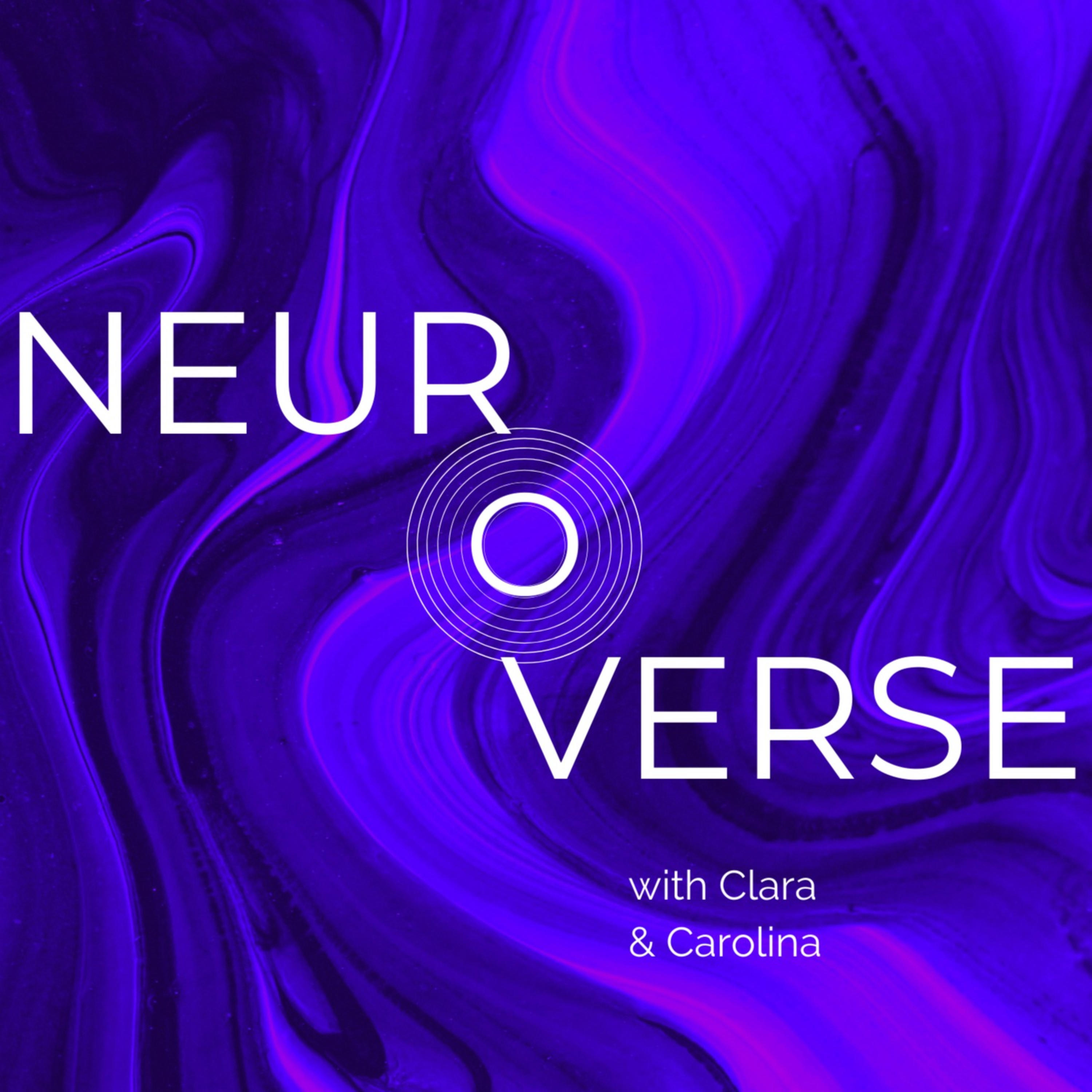 Neuroverse39. End of Year Episode - 2022 Reviewed!Join us in this more informal episode where we reminisce about how Neuroverse started, our favourite episodes and noting underlying themes across episodes. Emergence vs reductionism was a prominent topic, as well as comparing different types of intelligence, how information is translated across scales and our appreciation for multidisciplinary approaches. We would like to thank all our wonderful special guests and everyone who listens. We appreciate you all so much and keep sharing the love for science!
Stay tuned for even more exciting projects in 2023🎆
---
We hope you enjoy the...2022-12-2223 min
Neuroverse39. End of Year Episode - 2022 Reviewed!Join us in this more informal episode where we reminisce about how Neuroverse started, our favourite episodes and noting underlying themes across episodes. Emergence vs reductionism was a prominent topic, as well as comparing different types of intelligence, how information is translated across scales and our appreciation for multidisciplinary approaches. We would like to thank all our wonderful special guests and everyone who listens. We appreciate you all so much and keep sharing the love for science!
Stay tuned for even more exciting projects in 2023🎆
---
We hope you enjoy the...2022-12-2223 min Neuroverse38. Dating Apps: The Architects of Contemporary Relationships (with Olivia Sirley)We are back! In today’s episode Carolina and Clara are joined with Olivia Sirley who completed her bachelor’s at the University of the Arts London and wrote her thesis on “What role do dating apps play in finding intimate relationships within contemporary society”. Covering topics such as: dating app dependancy; the accessibility of dating apps; user behaviour; how it changes the nature of relationships; the mediated self; our obsession with finding the one and dopamine addiction loops!
---
We hope you enjoy the episode! Please feel free to share with your friends and family, it means a l...2022-12-0826 min
Neuroverse38. Dating Apps: The Architects of Contemporary Relationships (with Olivia Sirley)We are back! In today’s episode Carolina and Clara are joined with Olivia Sirley who completed her bachelor’s at the University of the Arts London and wrote her thesis on “What role do dating apps play in finding intimate relationships within contemporary society”. Covering topics such as: dating app dependancy; the accessibility of dating apps; user behaviour; how it changes the nature of relationships; the mediated self; our obsession with finding the one and dopamine addiction loops!
---
We hope you enjoy the episode! Please feel free to share with your friends and family, it means a l...2022-12-0826 min Neuroverse37. Does Memory Equal ConsciousnessIn this episode, Carolina and Clara discuss whether or not memory equals consciousness. Are we, our personal identity and conscious experience, defined by the collection of memories we accumulate throughout life? Did consciousness evolve as part of a memory system, or did memory evolve to facilitate consciousness? We explore these questions and more!
"Life is all memory, except for the present moment that goes by you so quick you hardly catch it going." - Tennessee Williams
---
We hope you enjoy the episode! Please feel free to share with your f...2022-11-0326 min
Neuroverse37. Does Memory Equal ConsciousnessIn this episode, Carolina and Clara discuss whether or not memory equals consciousness. Are we, our personal identity and conscious experience, defined by the collection of memories we accumulate throughout life? Did consciousness evolve as part of a memory system, or did memory evolve to facilitate consciousness? We explore these questions and more!
"Life is all memory, except for the present moment that goes by you so quick you hardly catch it going." - Tennessee Williams
---
We hope you enjoy the episode! Please feel free to share with your f...2022-11-0326 min Neuroverse36. Computational Units in the BrainWhat is the computational unit in the brain? At what scale does the brain store, transform, and transfer information? Is it within genes, or neurons, neural circuits, cortical columns, or whole-brain dynamics? In this episode, Carolina and Clara discuss how computations are performed at multiple levels in the brain, and how different computational units contribute to brain function.
---
We hope you enjoy the episode! Please feel free to share with your friends and family, it means a lot to us🤍
Neuroverse Website
https://neuroversepod.com
Podcast directory2022-10-2719 min
Neuroverse36. Computational Units in the BrainWhat is the computational unit in the brain? At what scale does the brain store, transform, and transfer information? Is it within genes, or neurons, neural circuits, cortical columns, or whole-brain dynamics? In this episode, Carolina and Clara discuss how computations are performed at multiple levels in the brain, and how different computational units contribute to brain function.
---
We hope you enjoy the episode! Please feel free to share with your friends and family, it means a lot to us🤍
Neuroverse Website
https://neuroversepod.com
Podcast directory2022-10-2719 min Neuroverse35. Spatial CognitionIn this weeks episode Carolina and Clara discuss spatial cognition - the focus of their masters project at Professor Matt Nolan’s lab in the University of Edinburgh. Focusing on navigation, memory and grid cells’ firing rate, Carolina and Clara discuss the crucial role the Medial Entorhinal Cortex has in providing spatial perception and episodic memory formation.
---
We hope you enjoy the episode! Please feel free to share with your friends and family, it means a lot to us🤍
Neuroverse Website
https://neuroversepod.com
Podcast directory
ht...2022-10-2022 min
Neuroverse35. Spatial CognitionIn this weeks episode Carolina and Clara discuss spatial cognition - the focus of their masters project at Professor Matt Nolan’s lab in the University of Edinburgh. Focusing on navigation, memory and grid cells’ firing rate, Carolina and Clara discuss the crucial role the Medial Entorhinal Cortex has in providing spatial perception and episodic memory formation.
---
We hope you enjoy the episode! Please feel free to share with your friends and family, it means a lot to us🤍
Neuroverse Website
https://neuroversepod.com
Podcast directory
ht...2022-10-2022 min Neuroverse34. Methodologies of Neuroscientific Investigation: A Philosophical Perspective (with Subham Ganguly)In this episode we are joined with another young neuroscientist, Subham Ganguly, to discuss methodological approaches to neursocience research from a philosophical perspective. How does the necessity to base research on biological hypotheses influence our findings? Are we limiting our potential for knowledge by categorising the brain into discrete brain regions? What is the value of coming up with theories that can be applied across the brain instead? How can we use biological mechanisms to define cognitive functions or behaviours? Or can we?
---
We hope you enjoy the episode! Please feel free to share...2022-10-1329 min
Neuroverse34. Methodologies of Neuroscientific Investigation: A Philosophical Perspective (with Subham Ganguly)In this episode we are joined with another young neuroscientist, Subham Ganguly, to discuss methodological approaches to neursocience research from a philosophical perspective. How does the necessity to base research on biological hypotheses influence our findings? Are we limiting our potential for knowledge by categorising the brain into discrete brain regions? What is the value of coming up with theories that can be applied across the brain instead? How can we use biological mechanisms to define cognitive functions or behaviours? Or can we?
---
We hope you enjoy the episode! Please feel free to share...2022-10-1329 min Neuroverse33. The Gut-Microbiome-Brain AxisWithin each of us exists a gut microbiome- trillions of bacteria, virus, fungi, and other microorganisms living in our gut. Research is increasingly revealing a role for the gut microbiome in health and disease. Changes to the gut microbiome have been linked to several psychiatric, behavioural, and neurodegenerative brain disorders, from depression to autism to dementia. But how can these tiny microorganisms regulate what is happening in our brains? In this episode, Carolina and Clara explore what we know about the elusive yet emerging gut-microbiome-brain axis, and how this knowledge could contribute to developing therapies for brain disorders.
2022-10-0621 min
Neuroverse33. The Gut-Microbiome-Brain AxisWithin each of us exists a gut microbiome- trillions of bacteria, virus, fungi, and other microorganisms living in our gut. Research is increasingly revealing a role for the gut microbiome in health and disease. Changes to the gut microbiome have been linked to several psychiatric, behavioural, and neurodegenerative brain disorders, from depression to autism to dementia. But how can these tiny microorganisms regulate what is happening in our brains? In this episode, Carolina and Clara explore what we know about the elusive yet emerging gut-microbiome-brain axis, and how this knowledge could contribute to developing therapies for brain disorders.
2022-10-0621 min Neuroverse32. Communicating Neuroscience in the 21st Century (with Dr. Ginger Campbell)In today's episode Carolina and Clara are joined with special guest Dr Ginger Campbell, who hosts the award-winning Brain Science podcast. They discuss the importance of communicating neuroscience and how having an understanding of how the brain works helps both individuals and societies to have more compassion towards one another, based on Dr Ginger Campbell's book "The Unconscious Origins of Certainty". Biases and beliefs are often down to dopamine-based reward systems. Our education systems tend to be built upon a binary "right or wrong" way of thinking, which fuels our reward systems to look for the right answers. While...2022-09-2929 min
Neuroverse32. Communicating Neuroscience in the 21st Century (with Dr. Ginger Campbell)In today's episode Carolina and Clara are joined with special guest Dr Ginger Campbell, who hosts the award-winning Brain Science podcast. They discuss the importance of communicating neuroscience and how having an understanding of how the brain works helps both individuals and societies to have more compassion towards one another, based on Dr Ginger Campbell's book "The Unconscious Origins of Certainty". Biases and beliefs are often down to dopamine-based reward systems. Our education systems tend to be built upon a binary "right or wrong" way of thinking, which fuels our reward systems to look for the right answers. While...2022-09-2929 min Neuroverse31. Neurogenesis (with Carlotta Barelli)This week we are joined by special guest and young neuroscientist, Carlotta Barelli, to discuss neurogenesis! While it was traditionally believed that the brain is a "nonrenewable organ", research is continually demonstrating that the brain actually has an incredible ability to adapt and renew in response to environmental changes. One such mechanism is known as neurogenesis, the formation and growth of new neurons, which can occur throughout life. In this episode, we discuss whether or not adult neurogenesis occurs in humans, how neurogenesis is different across species, the functional importance of neurogenesis, and what we can do to boost...2022-09-2228 min
Neuroverse31. Neurogenesis (with Carlotta Barelli)This week we are joined by special guest and young neuroscientist, Carlotta Barelli, to discuss neurogenesis! While it was traditionally believed that the brain is a "nonrenewable organ", research is continually demonstrating that the brain actually has an incredible ability to adapt and renew in response to environmental changes. One such mechanism is known as neurogenesis, the formation and growth of new neurons, which can occur throughout life. In this episode, we discuss whether or not adult neurogenesis occurs in humans, how neurogenesis is different across species, the functional importance of neurogenesis, and what we can do to boost...2022-09-2228 min Neuroverse30. Free will vs DeterminismIn today’s episode Carolina and Clara discuss free will vs determinism in a philosophical, physics and neuroscience context! Can the philosophical debate be reduced to the sciences? Does the existence of chance and randomness invalidate determinism? Does spontaneous brain activity support free will?
“Further conceive, I beg, that a stone, while continuing in motion, should be capable of thinking and knowing, that it is endeavoring, as far as it can, to continue to move. Such a stone, being conscious merely of its own endeavor and not at all indifferent, would believe itself to be completely free, and w...2022-09-1522 min
Neuroverse30. Free will vs DeterminismIn today’s episode Carolina and Clara discuss free will vs determinism in a philosophical, physics and neuroscience context! Can the philosophical debate be reduced to the sciences? Does the existence of chance and randomness invalidate determinism? Does spontaneous brain activity support free will?
“Further conceive, I beg, that a stone, while continuing in motion, should be capable of thinking and knowing, that it is endeavoring, as far as it can, to continue to move. Such a stone, being conscious merely of its own endeavor and not at all indifferent, would believe itself to be completely free, and w...2022-09-1522 min Neuroverse29. Predictive Coding and DendritesDendrites are the tree like structures that extend out from neurons and have powerful roles in information processing. In this episode, Carolina and Clara discuss how dendrites can enable a form of predictive coding by integrating feedback and feedforward information. Is the brainwide predictive coding system comparable to the smaller-scale dendritic level?
---
We hope you enjoy the episode! Please feel free to share with your friends and family, it means a lot to us🤍
Neuroverse Website
https://neuroversepod.com
Podcast directory
https://anchor.fm/neuroverse9
S...2022-09-0823 min
Neuroverse29. Predictive Coding and DendritesDendrites are the tree like structures that extend out from neurons and have powerful roles in information processing. In this episode, Carolina and Clara discuss how dendrites can enable a form of predictive coding by integrating feedback and feedforward information. Is the brainwide predictive coding system comparable to the smaller-scale dendritic level?
---
We hope you enjoy the episode! Please feel free to share with your friends and family, it means a lot to us🤍
Neuroverse Website
https://neuroversepod.com
Podcast directory
https://anchor.fm/neuroverse9
S...2022-09-0823 min Neuroverse28. Subjectivity and Emotional ValenceIn today’s episode Carolina and Clara discuss subjectivity and emotional valence, inspired by Kay M. Tay’s review paper on emotional valence. Quantifying and measuring emotions is a feat attempted by scientists, but is it truly possible? Could we ever cross that epistemological barrier? Are emotions binary or on a spectrum?
---
We hope you enjoy the episode! Please feel free to share with your friends and family, it means a lot to us🤍
Neuroverse Website
https://neuroversepod.com
Podcast directory
https://anchor.fm/neuroverse9
Suppor...2022-09-0121 min
Neuroverse28. Subjectivity and Emotional ValenceIn today’s episode Carolina and Clara discuss subjectivity and emotional valence, inspired by Kay M. Tay’s review paper on emotional valence. Quantifying and measuring emotions is a feat attempted by scientists, but is it truly possible? Could we ever cross that epistemological barrier? Are emotions binary or on a spectrum?
---
We hope you enjoy the episode! Please feel free to share with your friends and family, it means a lot to us🤍
Neuroverse Website
https://neuroversepod.com
Podcast directory
https://anchor.fm/neuroverse9
Suppor...2022-09-0121 min Neuroverse27. Science-Art with TakT (Adèle Tilouine and Tyler Kaufman)In this episode, Carolina and Clara discuss science art with the incredible Science-Art duo: Adèle Tilouine and Tyler Kaufman. Together they are TakT! They are artists that use science and philosophy as inspiration to create immersive sensorial and artistic experiences. Adèle focusing on the visual arts and Tyler on the sound composition, together achieve transcendental works of art. In this episode they discuss the importance of interdisciplinary collaboration, the importance of science communication and how art can communicate science. Are scientists artists? And are artists scientists?
TakT website: https://taktarts.com/
Co...2022-08-2533 min
Neuroverse27. Science-Art with TakT (Adèle Tilouine and Tyler Kaufman)In this episode, Carolina and Clara discuss science art with the incredible Science-Art duo: Adèle Tilouine and Tyler Kaufman. Together they are TakT! They are artists that use science and philosophy as inspiration to create immersive sensorial and artistic experiences. Adèle focusing on the visual arts and Tyler on the sound composition, together achieve transcendental works of art. In this episode they discuss the importance of interdisciplinary collaboration, the importance of science communication and how art can communicate science. Are scientists artists? And are artists scientists?
TakT website: https://taktarts.com/
Co...2022-08-2533 min Neuroverse26. Science Misinformation: Real Science, Desperate ScientistsIn this episode, Carolina and Clara discuss yet another type of science misinformation in part 3 of the "Science Misinformation" series. Pressure in the science community to produce research and publish interesting results is continuously increasing, and this can unfortunately drive bias and misconduct by scientists to inflate the truth or find what they are looking for. Inspired by a recent investigation into one scientist's research, we discuss why this happens and, importantly, what is being done to avoid it in the neuroscience community.
---
We hope you enjoy the episode! Please feel free to share w...2022-08-1818 min
Neuroverse26. Science Misinformation: Real Science, Desperate ScientistsIn this episode, Carolina and Clara discuss yet another type of science misinformation in part 3 of the "Science Misinformation" series. Pressure in the science community to produce research and publish interesting results is continuously increasing, and this can unfortunately drive bias and misconduct by scientists to inflate the truth or find what they are looking for. Inspired by a recent investigation into one scientist's research, we discuss why this happens and, importantly, what is being done to avoid it in the neuroscience community.
---
We hope you enjoy the episode! Please feel free to share w...2022-08-1818 min Neuroverse25. Scientific Planes of UnderstandingIn this episode, Carolina and Clara compare different scientific planes of understanding! Carolina coming from a biochemistry background and Clara from a neuroscience background, have over time realised these fields have distinct ways of researching science and lead to a different way of thinking about science. While with biochemistry, understanding the structure may lead to understanding the function; with neuroscience it’s not so linear. Neuroscience appears to require an understanding from several different planes: the molecular, the electrophysiological, the anatomical, behavioural, and potentially even philosophical?
---
We hope you enjoy the episode! Please feel fre...2022-08-1122 min
Neuroverse25. Scientific Planes of UnderstandingIn this episode, Carolina and Clara compare different scientific planes of understanding! Carolina coming from a biochemistry background and Clara from a neuroscience background, have over time realised these fields have distinct ways of researching science and lead to a different way of thinking about science. While with biochemistry, understanding the structure may lead to understanding the function; with neuroscience it’s not so linear. Neuroscience appears to require an understanding from several different planes: the molecular, the electrophysiological, the anatomical, behavioural, and potentially even philosophical?
---
We hope you enjoy the episode! Please feel fre...2022-08-1122 min Neuroverse24. The HippocampusIn this episode, Carolina and Clara explore the hippocampus, a brain region that is critical for the formation of memories. The hippocampus is thought to carry out complex computations, which has made it a key focus for theoretical neuroscience. What are some theories for hippocampal function? And how do hippocampal computations transform information to enable memory formation?
---
We hope you enjoy the episode! Please feel free to share with your friends and family, it means a lot to us🤍
Neuroverse Website
https://neuroversepod.com
Podcast directory
...2022-07-2122 min
Neuroverse24. The HippocampusIn this episode, Carolina and Clara explore the hippocampus, a brain region that is critical for the formation of memories. The hippocampus is thought to carry out complex computations, which has made it a key focus for theoretical neuroscience. What are some theories for hippocampal function? And how do hippocampal computations transform information to enable memory formation?
---
We hope you enjoy the episode! Please feel free to share with your friends and family, it means a lot to us🤍
Neuroverse Website
https://neuroversepod.com
Podcast directory
...2022-07-2122 min Neuroverse23. Cross-Modal Plasticity (with Johanna Jaansoo)This episode we are joined with special guest and young neuroscientist, Johanna Jaansoo, as we discuss plasticity of sensory modalities in response to sensory deprivation. How are sensory modalities (visual, auditory, tactile, etc.) connected to each other? How is the development of the senses connected to the development of cognition and high-order functions? What capacity do sensory modalities have to change after deprivation of sensory inputs (e.g. blindness, deafness). How can knowledge about cross-modal plasticity be used to improve therapeutics for neurodevelopmental and neurodegenerative disorders?
---
We hope you enjoy the episode! Please feel f...2022-07-1424 min
Neuroverse23. Cross-Modal Plasticity (with Johanna Jaansoo)This episode we are joined with special guest and young neuroscientist, Johanna Jaansoo, as we discuss plasticity of sensory modalities in response to sensory deprivation. How are sensory modalities (visual, auditory, tactile, etc.) connected to each other? How is the development of the senses connected to the development of cognition and high-order functions? What capacity do sensory modalities have to change after deprivation of sensory inputs (e.g. blindness, deafness). How can knowledge about cross-modal plasticity be used to improve therapeutics for neurodevelopmental and neurodegenerative disorders?
---
We hope you enjoy the episode! Please feel f...2022-07-1424 min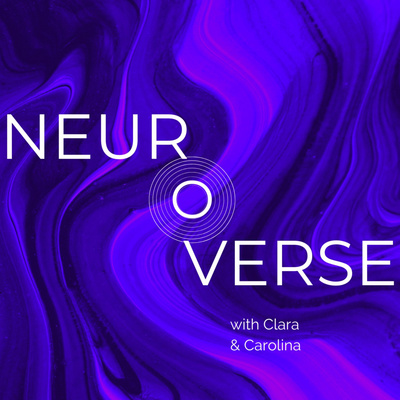 Neuroverse22. Science Misinformation: The Lifestyle IndustryIn this episode, Carolina and Clara discuss more examples of science misinformation. From collagen to therapy apps, this episode focuses on how the lifestyle industry uses science misinformation to sell products and ultimately propogates the spread of scientifically false beliefs.
---
We hope you enjoy the episode! Please feel free to share with your friends and family, it means a lot to us🤍
Neuroverse Website
https://neuroversepod.com
Podcast directory
https://anchor.fm/neuroverse9
Support us!
https://ko-fi.com/neuroverse
Twitter: @neuroverse_pod
https://twitter.com...2022-07-0716 min
Neuroverse22. Science Misinformation: The Lifestyle IndustryIn this episode, Carolina and Clara discuss more examples of science misinformation. From collagen to therapy apps, this episode focuses on how the lifestyle industry uses science misinformation to sell products and ultimately propogates the spread of scientifically false beliefs.
---
We hope you enjoy the episode! Please feel free to share with your friends and family, it means a lot to us🤍
Neuroverse Website
https://neuroversepod.com
Podcast directory
https://anchor.fm/neuroverse9
Support us!
https://ko-fi.com/neuroverse
Twitter: @neuroverse_pod
https://twitter.com...2022-07-0716 min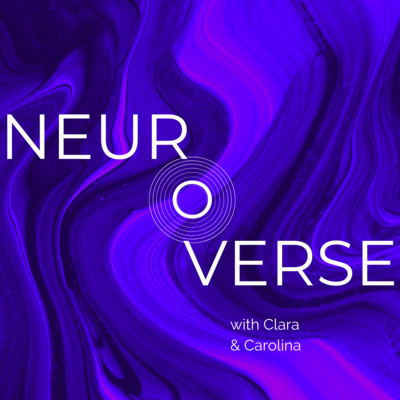 Neuroverse21. MyceliumSometimes called the "Wood Wide Web", mycelium or mycorrhizal networks are a form of fungi that have an incredible capacity to connect plants and transport nutrients and signals. How do mycelia contribute to plant intelligence? Join Carolina and Clara as they compare mycelium and neural networks, plant and human intelligence, taking inspiration from the work of Paul Stamets, Suzanne Simard, and others.
---
We hope you enjoy the episode! Please feel free to share with your friends and family, it means a lot to us🤍
Neuroverse Website
https://neuroversepo...2022-06-3020 min
Neuroverse21. MyceliumSometimes called the "Wood Wide Web", mycelium or mycorrhizal networks are a form of fungi that have an incredible capacity to connect plants and transport nutrients and signals. How do mycelia contribute to plant intelligence? Join Carolina and Clara as they compare mycelium and neural networks, plant and human intelligence, taking inspiration from the work of Paul Stamets, Suzanne Simard, and others.
---
We hope you enjoy the episode! Please feel free to share with your friends and family, it means a lot to us🤍
Neuroverse Website
https://neuroversepo...2022-06-3020 min Neuroverse20. The Philosophy of Machine Learning (with Alex Mussgnug)In this episode Carolina and Clara discuss the philosophy of machine learning with Alex Mussgnug who is doing a PhD at the University of Edinburgh in the epistemology of machine learning. They compare computational models of machine learning and how it is applicable to science.
---
We hope you enjoy the episode! Please feel free to share with your friends and family, it means a lot to us🤍
Neuroverse Website
https://neuroversepod.com
Podcast directory
https://anchor.fm/neuroverse9
Support us!
https://ko-fi.com/neuroverse 2022-06-2327 min
Neuroverse20. The Philosophy of Machine Learning (with Alex Mussgnug)In this episode Carolina and Clara discuss the philosophy of machine learning with Alex Mussgnug who is doing a PhD at the University of Edinburgh in the epistemology of machine learning. They compare computational models of machine learning and how it is applicable to science.
---
We hope you enjoy the episode! Please feel free to share with your friends and family, it means a lot to us🤍
Neuroverse Website
https://neuroversepod.com
Podcast directory
https://anchor.fm/neuroverse9
Support us!
https://ko-fi.com/neuroverse 2022-06-2327 min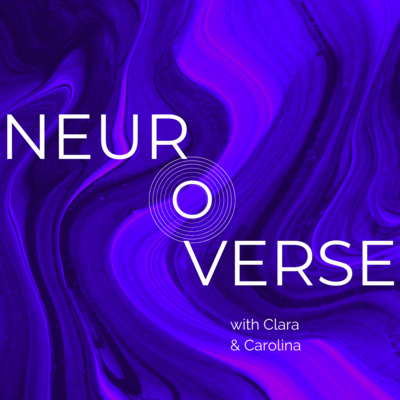 Neuroverse19. Science Misinformation: Human-Animal ChimerasThis week, Carolina and Clara dicuss why and how science can be misinformed and miscommunicated, using the example of human-animal chimeras. What are human-animal chimeras, really? How have they been misconceived in the media? Are scientists evil? Join us as we debunk science misinformation and conspiracy theories about human-animal chimeras.
---
We hope you enjoy the episode! Please feel free to share with your friends and family, it means a lot to us🤍
Neuroverse Website
https://neuroversepod.com
Podcast directory
https://anchor.fm/neuroverse9
Support us!
https://ko...2022-06-1616 min
Neuroverse19. Science Misinformation: Human-Animal ChimerasThis week, Carolina and Clara dicuss why and how science can be misinformed and miscommunicated, using the example of human-animal chimeras. What are human-animal chimeras, really? How have they been misconceived in the media? Are scientists evil? Join us as we debunk science misinformation and conspiracy theories about human-animal chimeras.
---
We hope you enjoy the episode! Please feel free to share with your friends and family, it means a lot to us🤍
Neuroverse Website
https://neuroversepod.com
Podcast directory
https://anchor.fm/neuroverse9
Support us!
https://ko...2022-06-1616 min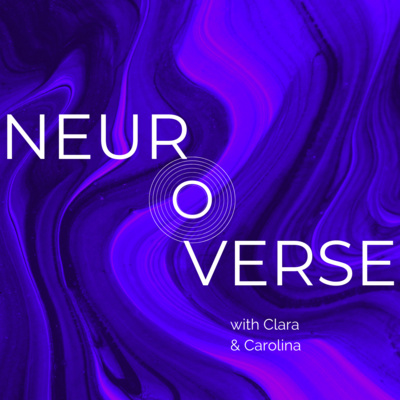 Neuroverse18. Is Coffee Good or Bad?Carolina and Clara discuss the evidence for and against consuming caffeine. As the most consumed psycho-stimulant beverage with billions of cups of coffee consumed every day it is relevant to know just how good or harm drinking coffee is having on your body!
---
We hope you enjoy the episode! Please feel free to share with your friends and family, it means a lot to us🤍
Neuroverse Website
https://neuroversepod.com
Podcast directory
https://anchor.fm/neuroverse9
Support us!
https://ko-fi.com/neuroverse
Twitter: @neurover...2022-06-0921 min
Neuroverse18. Is Coffee Good or Bad?Carolina and Clara discuss the evidence for and against consuming caffeine. As the most consumed psycho-stimulant beverage with billions of cups of coffee consumed every day it is relevant to know just how good or harm drinking coffee is having on your body!
---
We hope you enjoy the episode! Please feel free to share with your friends and family, it means a lot to us🤍
Neuroverse Website
https://neuroversepod.com
Podcast directory
https://anchor.fm/neuroverse9
Support us!
https://ko-fi.com/neuroverse
Twitter: @neurover...2022-06-0921 min Neuroverse17. Understanding the World Through Physics (with Liza Rozenberg)In this episode Carolina and Clara discuss with special guest Liza Rozenberg, a Princeton graduate in Physics, how we understand the world through physics. Addressing questions such as: Can we expand our mathematical toolbox and if so, would it allow us to understand the world better? How can we study something from inside the system of interest (the world, the brain), our probing interferes with the state of the system in the first place. “What we observe is not nature in itself but nature exposed to our method of questioning.” - Werner Heisenberg Want to learn and interact with us m...2022-06-0231 min
Neuroverse17. Understanding the World Through Physics (with Liza Rozenberg)In this episode Carolina and Clara discuss with special guest Liza Rozenberg, a Princeton graduate in Physics, how we understand the world through physics. Addressing questions such as: Can we expand our mathematical toolbox and if so, would it allow us to understand the world better? How can we study something from inside the system of interest (the world, the brain), our probing interferes with the state of the system in the first place. “What we observe is not nature in itself but nature exposed to our method of questioning.” - Werner Heisenberg Want to learn and interact with us m...2022-06-0231 min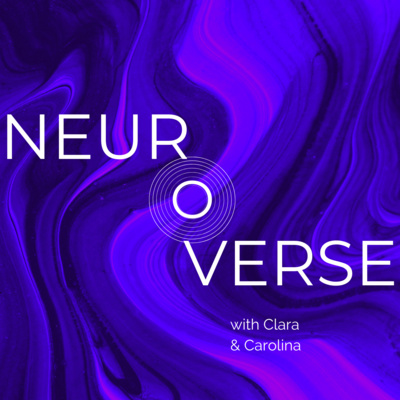 Neuroverse16. Silence in the Age of Noise, and on the BrainSilence: In the Age of Noise by Erling Kegge is the inspiration for today’s episode! Carolina and Clara discuss the book and the value of silence in an age of noise, with a neuroscientific lens. “There is a love no one remembers. In a way it is the silence that speaks”- Jon Fosser
---
We hope you enjoy the episode! Please feel free to share with your friends and family, it means a lot to us🤍
Neuroverse Website
https://neuroversepod.com
Podcast directory
https://anchor.fm/n...2022-05-2622 min
Neuroverse16. Silence in the Age of Noise, and on the BrainSilence: In the Age of Noise by Erling Kegge is the inspiration for today’s episode! Carolina and Clara discuss the book and the value of silence in an age of noise, with a neuroscientific lens. “There is a love no one remembers. In a way it is the silence that speaks”- Jon Fosser
---
We hope you enjoy the episode! Please feel free to share with your friends and family, it means a lot to us🤍
Neuroverse Website
https://neuroversepod.com
Podcast directory
https://anchor.fm/n...2022-05-2622 min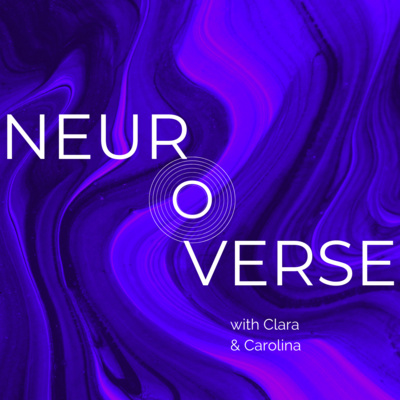 Neuroverse15. Noise in the BrainIn this episode, Carolina and Clara discuss how spontaneous brain activity creates "noise". The same type of noise is found throughout physical and biological systems, such as in seismic activity and even stock market fluctuations. Could this enigmatic noise have a role in perception and cognition? We explore theories by Edmund Rolls, Georg Northoff, and others!
---
We hope you enjoy the episode! Please feel free to share with your friends and family, it means a lot to us🤍
Neuroverse Website
https://neuroversepod.com
Podcast directory
https://a...2022-05-1920 min
Neuroverse15. Noise in the BrainIn this episode, Carolina and Clara discuss how spontaneous brain activity creates "noise". The same type of noise is found throughout physical and biological systems, such as in seismic activity and even stock market fluctuations. Could this enigmatic noise have a role in perception and cognition? We explore theories by Edmund Rolls, Georg Northoff, and others!
---
We hope you enjoy the episode! Please feel free to share with your friends and family, it means a lot to us🤍
Neuroverse Website
https://neuroversepod.com
Podcast directory
https://a...2022-05-1920 min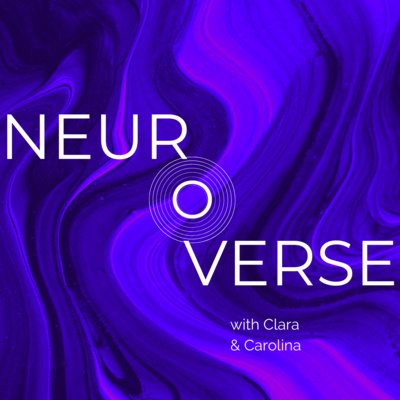 Neuroverse14. ReductionismIn this episode, Carolina and Clara discuss what Reductionism means in the context of visual art and in the context of the brain. Based on Nobel prize winning neuroscientist Eric Kandel's book (Reductionism in Art and Brain Science) we explore how the brain perceives abstract art, what it can reveal about how our brains function, and whether a reductionist research approach is valuable.
---
We hope you enjoy the episode! Please feel free to share with your friends and family, it means a lot to us🤍
Neuroverse Website
https://neu...2022-05-1220 min
Neuroverse14. ReductionismIn this episode, Carolina and Clara discuss what Reductionism means in the context of visual art and in the context of the brain. Based on Nobel prize winning neuroscientist Eric Kandel's book (Reductionism in Art and Brain Science) we explore how the brain perceives abstract art, what it can reveal about how our brains function, and whether a reductionist research approach is valuable.
---
We hope you enjoy the episode! Please feel free to share with your friends and family, it means a lot to us🤍
Neuroverse Website
https://neu...2022-05-1220 min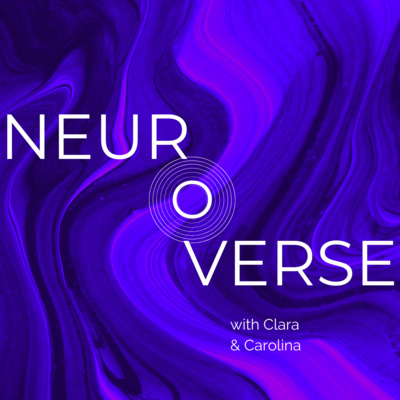 Neuroverse13. Oxygen- Friend or Foe: a DebateWhy did we evolve to need oxygen? Carolina and Clara debate whether oxygen is the best element for metabolic reactions and whether the volatile nature of reactive oxygen species is beneficial or damaging. Could we have evolved differently?
---
We hope you enjoy the episode! Please feel free to share with your friends and family, it means a lot to us🤍
Neuroverse Website
https://neuroversepod.com
Podcast directory
https://anchor.fm/neuroverse9
Support us!
https://ko-fi.com/neuroverse
Twitter: @neuroverse_pod
https://twitter.com/neurove...2022-05-0522 min
Neuroverse13. Oxygen- Friend or Foe: a DebateWhy did we evolve to need oxygen? Carolina and Clara debate whether oxygen is the best element for metabolic reactions and whether the volatile nature of reactive oxygen species is beneficial or damaging. Could we have evolved differently?
---
We hope you enjoy the episode! Please feel free to share with your friends and family, it means a lot to us🤍
Neuroverse Website
https://neuroversepod.com
Podcast directory
https://anchor.fm/neuroverse9
Support us!
https://ko-fi.com/neuroverse
Twitter: @neuroverse_pod
https://twitter.com/neurove...2022-05-0522 min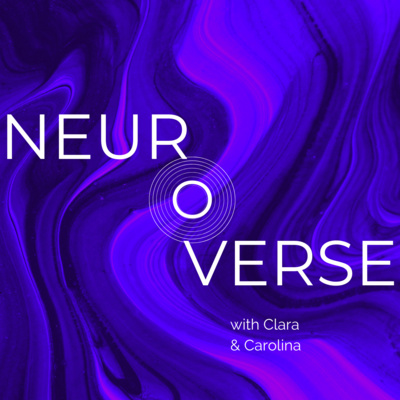 Neuroverse12. Polyvagal Theory and YogaIn this episode, Carolina and Clara discuss Polyvagal Theory, a theory conceived by Dr. Stephen Porges that addresses neurobiology, psychology, and evolutionary mechanisms and ultimately proposes an important role for the vagus nerve in emotion regulation and social behaviour. What can this theoretical model explain about the evolution of human social behaviour? And how is it related to ancient yogic philosophy? Join us to find out!
---
We hope you enjoy the episode! Please feel free to share with your friends and family, it means a lot to us🤍
Neuroverse Webs...2022-04-2822 min
Neuroverse12. Polyvagal Theory and YogaIn this episode, Carolina and Clara discuss Polyvagal Theory, a theory conceived by Dr. Stephen Porges that addresses neurobiology, psychology, and evolutionary mechanisms and ultimately proposes an important role for the vagus nerve in emotion regulation and social behaviour. What can this theoretical model explain about the evolution of human social behaviour? And how is it related to ancient yogic philosophy? Join us to find out!
---
We hope you enjoy the episode! Please feel free to share with your friends and family, it means a lot to us🤍
Neuroverse Webs...2022-04-2822 min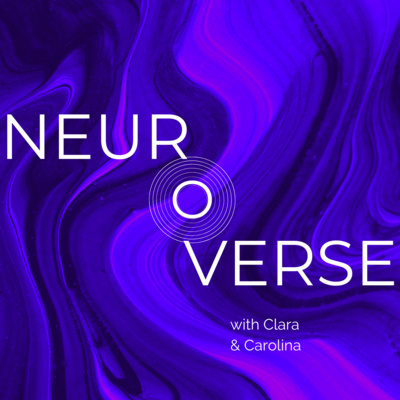 Neuroverse11. The Mind-Muscle Connection (with Jubilent Amalendran)In this episode we discuss the connection between muscle and mind with a special guest, Jubilent Amalendran, junior doctor and calisthenics lover. What is meant of the mind-muscle connection? How can conscious control of movement change our muscles? What is the importance of movement as a reflection of the mind at any one point in time? Join us as we discuss these fascinating questions!
---
We hope you enjoy the episode! Please feel free to share with your friends and family, it means a lot to us🤍
Neuroverse Website
...2022-04-2126 min
Neuroverse11. The Mind-Muscle Connection (with Jubilent Amalendran)In this episode we discuss the connection between muscle and mind with a special guest, Jubilent Amalendran, junior doctor and calisthenics lover. What is meant of the mind-muscle connection? How can conscious control of movement change our muscles? What is the importance of movement as a reflection of the mind at any one point in time? Join us as we discuss these fascinating questions!
---
We hope you enjoy the episode! Please feel free to share with your friends and family, it means a lot to us🤍
Neuroverse Website
...2022-04-2126 min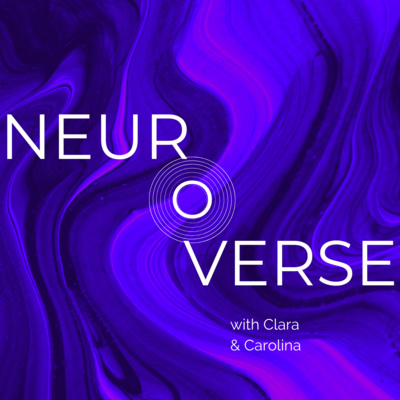 Neuroverse10. Materialism and DualismIn this episode, Carolina and Clara introduce Materialistic and competing Dualistic philosophies of mind. They explore why consciousness is so difficult to understand (the hard problem) and whether mental phenomena are better explained by material or non-material processes, using well-known thought experiments to do so!
---
We hope you enjoy the episode! Please feel free to share with your friends and family, it means a lot to us🤍
Neuroverse Website
https://neuroversepod.com
Podcast directory
https://anchor.fm/neuroverse9
Support us!
https://ko-fi.com/neuroverse 2022-04-1422 min
Neuroverse10. Materialism and DualismIn this episode, Carolina and Clara introduce Materialistic and competing Dualistic philosophies of mind. They explore why consciousness is so difficult to understand (the hard problem) and whether mental phenomena are better explained by material or non-material processes, using well-known thought experiments to do so!
---
We hope you enjoy the episode! Please feel free to share with your friends and family, it means a lot to us🤍
Neuroverse Website
https://neuroversepod.com
Podcast directory
https://anchor.fm/neuroverse9
Support us!
https://ko-fi.com/neuroverse 2022-04-1422 min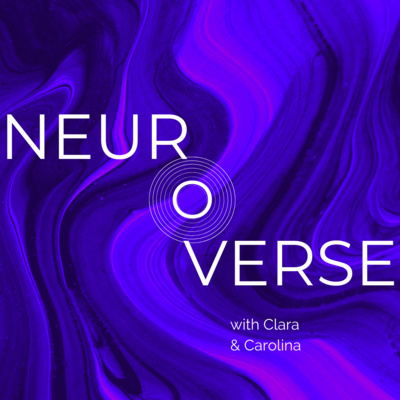 Neuroverse9. Is Sleep Deprivation Fatal?Have you ever wondered why humans spend 1/3 of their lives asleep? What happens if you don’t sleep? Carolina and Clara discuss some existing evidence for how lack of sleep can kill, especially focusing on Dragana Regulja’s research.
---
We hope you enjoy the episode! Please feel free to share with your friends and family, it means a lot to us🤍
Neuroverse Website
https://neuroversepod.com
Podcast directory
https://anchor.fm/neuroverse9
Support us!
https://ko-fi.com/neuroverse
Twitter: @neuroverse_pod
https://twitter.com/neurovers...2022-04-0721 min
Neuroverse9. Is Sleep Deprivation Fatal?Have you ever wondered why humans spend 1/3 of their lives asleep? What happens if you don’t sleep? Carolina and Clara discuss some existing evidence for how lack of sleep can kill, especially focusing on Dragana Regulja’s research.
---
We hope you enjoy the episode! Please feel free to share with your friends and family, it means a lot to us🤍
Neuroverse Website
https://neuroversepod.com
Podcast directory
https://anchor.fm/neuroverse9
Support us!
https://ko-fi.com/neuroverse
Twitter: @neuroverse_pod
https://twitter.com/neurovers...2022-04-0721 min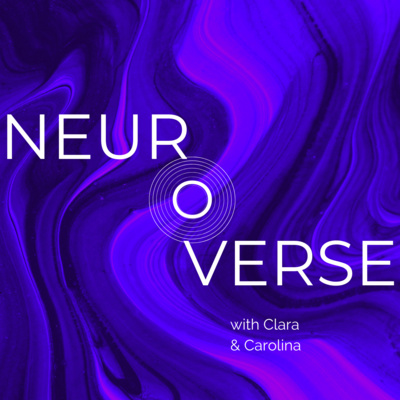 Neuroverse8. Sleep, Memory & ForgettingIn this episode, Carolina and Clara discuss why sleep is so important! They explore how sleep is needed for both memory consolidation and decluttering the brain of unimportant information, and how memory can be experimentally manipulated during sleep.
---
We hope you enjoy the episode! Please feel free to share with your friends and family, it means a lot to us🤍
Neuroverse Website
https://neuroversepod.com
Podcast directory
https://anchor.fm/neuroverse9
Support us!
https://ko-fi.com/neuroverse
Twitter: @neuroverse_pod
https://twitter.com/neurove...2022-03-3123 min
Neuroverse8. Sleep, Memory & ForgettingIn this episode, Carolina and Clara discuss why sleep is so important! They explore how sleep is needed for both memory consolidation and decluttering the brain of unimportant information, and how memory can be experimentally manipulated during sleep.
---
We hope you enjoy the episode! Please feel free to share with your friends and family, it means a lot to us🤍
Neuroverse Website
https://neuroversepod.com
Podcast directory
https://anchor.fm/neuroverse9
Support us!
https://ko-fi.com/neuroverse
Twitter: @neuroverse_pod
https://twitter.com/neurove...2022-03-3123 min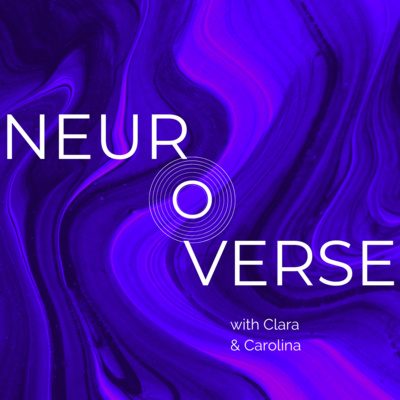 Neuroverse7. Structure-Function RelationshipsDoes structure determine function? In this episode Carolina and Clara discuss different studies that have swayed the structure-function argument into one side or another. Can this argument be solved or is it inherently cyclical? Be sure to listen to find out! They also talk about chaperones, protein folding, phase separation, whether neuronal structures lead to molecular and behavioural outputs, and much more!
---
We hope you enjoy the episode! Please feel free to share with your friends and family, it means a lot to us🤍
Neuroverse Website
https://neuroversepo...2022-03-2420 min
Neuroverse7. Structure-Function RelationshipsDoes structure determine function? In this episode Carolina and Clara discuss different studies that have swayed the structure-function argument into one side or another. Can this argument be solved or is it inherently cyclical? Be sure to listen to find out! They also talk about chaperones, protein folding, phase separation, whether neuronal structures lead to molecular and behavioural outputs, and much more!
---
We hope you enjoy the episode! Please feel free to share with your friends and family, it means a lot to us🤍
Neuroverse Website
https://neuroversepo...2022-03-2420 min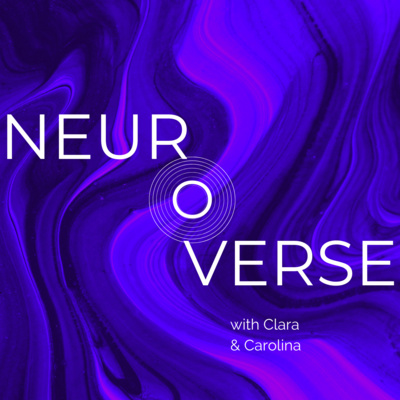 Neuroverse6. Breathing, the Brain, BeingHave you ever wondered how the breath and the mind are connected? In this episode, Carolina and Clara explore the neuroscience of breathing: how the rhythm of breathing influences brain-wide activity, providing a scaffold for the transfer of information across the brain, and how breathing influences our attentional and interoceptive states, which ultimately define our experience of being.
---
We hope you enjoy the episode! Please feel free to share with your friends and family, it means a lot to us🤍
Neuroverse Website
https://neuroversepod.com
Podcast directory2022-03-1723 min
Neuroverse6. Breathing, the Brain, BeingHave you ever wondered how the breath and the mind are connected? In this episode, Carolina and Clara explore the neuroscience of breathing: how the rhythm of breathing influences brain-wide activity, providing a scaffold for the transfer of information across the brain, and how breathing influences our attentional and interoceptive states, which ultimately define our experience of being.
---
We hope you enjoy the episode! Please feel free to share with your friends and family, it means a lot to us🤍
Neuroverse Website
https://neuroversepod.com
Podcast directory2022-03-1723 min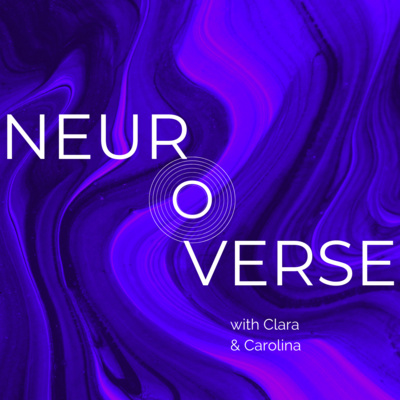 Neuroverse5. Enzyme-Directed EvolutionThis week Carolina and Clara discuss enzymes and enzyme-directed evolution. Enzymes are these incredible biological catalysts present in the natural world. However, with recent research carried out by Frances Arnold, and many others, enzymes have been directed to bind with non-organic matter!
---
We hope you enjoy the episode! Please feel free to share with your friends and family, it means a lot to us🤍
Neuroverse Website
https://neuroversepod.com
Podcast directory
https://anchor.fm/neuroverse9
Support us!
https://ko-fi.com/neuroverse
Twitter: @neuroverse_pod...2022-03-1019 min
Neuroverse5. Enzyme-Directed EvolutionThis week Carolina and Clara discuss enzymes and enzyme-directed evolution. Enzymes are these incredible biological catalysts present in the natural world. However, with recent research carried out by Frances Arnold, and many others, enzymes have been directed to bind with non-organic matter!
---
We hope you enjoy the episode! Please feel free to share with your friends and family, it means a lot to us🤍
Neuroverse Website
https://neuroversepod.com
Podcast directory
https://anchor.fm/neuroverse9
Support us!
https://ko-fi.com/neuroverse
Twitter: @neuroverse_pod...2022-03-1019 min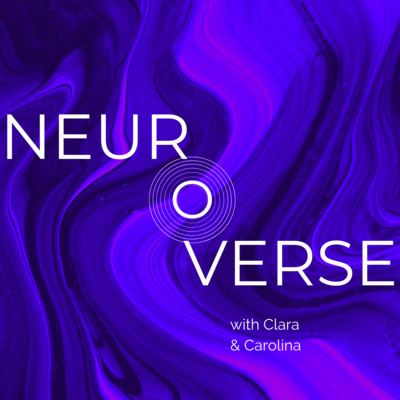 Neuroverse4. The Entropic BrainIn this episode, Carolina and Clara discuss entropy, chaos, and disorder in the context of brain activity. In an attempt to reduce the amount of disorder, our brains may stick to a structured framework of activity, limiting its capacity to be creative and generate new ideas or connections. How does this influence our perception of reality? And how can we overcome this natural "negentropic" tendency?
---
We hope you enjoy the episode! Please feel free to share with your friends and family, it means a lot to us🤍
Neuroverse Website
2022-03-0321 min
Neuroverse4. The Entropic BrainIn this episode, Carolina and Clara discuss entropy, chaos, and disorder in the context of brain activity. In an attempt to reduce the amount of disorder, our brains may stick to a structured framework of activity, limiting its capacity to be creative and generate new ideas or connections. How does this influence our perception of reality? And how can we overcome this natural "negentropic" tendency?
---
We hope you enjoy the episode! Please feel free to share with your friends and family, it means a lot to us🤍
Neuroverse Website
2022-03-0321 min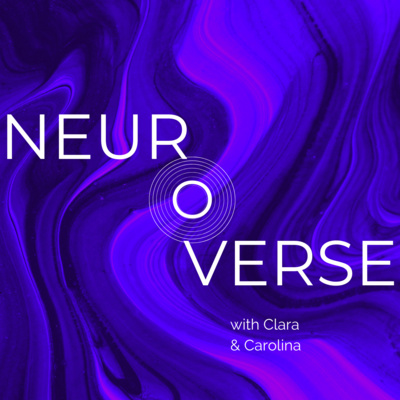 Neuroverse3. Predictive CodingPredictive coding is an emerging framework for understanding how our brains incorporate external stimuli into our internal mental state. With it arises questions such as: How can we distinguish internally generated stimuli from external stimuli? How do we perceive our environment? Can we tell what reality is? In this episode Carolina and Clara explore and discuss these questions!
---
We hope you enjoy the episode! Please feel free to share with your friends and family, it means a lot to us🤍
Neuroverse Website
https://neuroversepod.com
Podcast directory2022-02-2424 min
Neuroverse3. Predictive CodingPredictive coding is an emerging framework for understanding how our brains incorporate external stimuli into our internal mental state. With it arises questions such as: How can we distinguish internally generated stimuli from external stimuli? How do we perceive our environment? Can we tell what reality is? In this episode Carolina and Clara explore and discuss these questions!
---
We hope you enjoy the episode! Please feel free to share with your friends and family, it means a lot to us🤍
Neuroverse Website
https://neuroversepod.com
Podcast directory2022-02-2424 min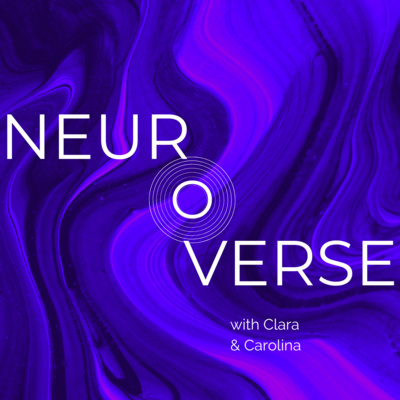 Neuroverse2. The Human Brain, the Evolved BrainThis episode is on evolution and the human brain! Carolina and Clara discuss how the human brain compares to that of other animals, and how understanding the process of evolution can help us better understand the function of the brain.
---
We hope you enjoy the episode! Please feel free to share with your friends and family, it means a lot to us🤍
Neuroverse Website
https://neuroversepod.com
Podcast directory
https://anchor.fm/neuroverse9
Support us!
https://ko-fi.com/neuroverse
Twitter: @neuroverse_pod
https://twitter.com/n...2022-02-1720 min
Neuroverse2. The Human Brain, the Evolved BrainThis episode is on evolution and the human brain! Carolina and Clara discuss how the human brain compares to that of other animals, and how understanding the process of evolution can help us better understand the function of the brain.
---
We hope you enjoy the episode! Please feel free to share with your friends and family, it means a lot to us🤍
Neuroverse Website
https://neuroversepod.com
Podcast directory
https://anchor.fm/neuroverse9
Support us!
https://ko-fi.com/neuroverse
Twitter: @neuroverse_pod
https://twitter.com/n...2022-02-1720 min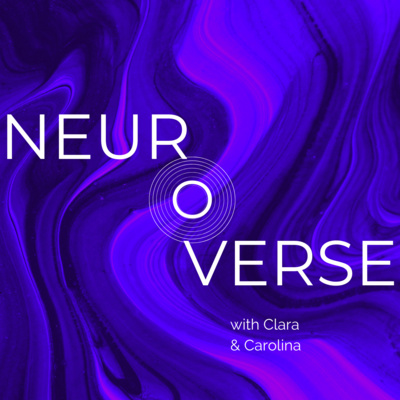 Neuroverse1. IndividualityThis episode is on individuality. Carolina and Clara discuss what makes an individual, where one thing starts and another ends. Does an individual need to exist in spacial terms, temporal terms, or both? Is it all relative? Can a group of trees be considered an individual? Listen to hear us ponder these questions.
---
We hope you enjoy the episode! Please feel free to share with your friends and family, it means a lot to us🤍
Neuroverse Website
https://neuroversepod.com
Podcast directory
https://anchor.fm/neuroverse9 2022-02-1420 min
Neuroverse1. IndividualityThis episode is on individuality. Carolina and Clara discuss what makes an individual, where one thing starts and another ends. Does an individual need to exist in spacial terms, temporal terms, or both? Is it all relative? Can a group of trees be considered an individual? Listen to hear us ponder these questions.
---
We hope you enjoy the episode! Please feel free to share with your friends and family, it means a lot to us🤍
Neuroverse Website
https://neuroversepod.com
Podcast directory
https://anchor.fm/neuroverse9 2022-02-1420 min NeuroverseNeuroverse (Trailer)2022-02-1300 min
NeuroverseNeuroverse (Trailer)2022-02-1300 min